- Full IELTS Practice Tests
- Practice Tests

Fitness Holidays
- View Solution
Solution for: Fitness Holidays
Answer table.
Found a mistake? Let us know!
Share this Practice Test
Exam Review

Questions 1-2
Choose TWO letters, A-E .
Which TWO age groups are taking increasing numbers of holidays with BC Travel?
A 16-30 years
B 31-42 years
C 43-54 years
D 55-64 years
E over 65 years 1. Answer: D, E - in either order Locate Listen from here 2. Answer: D, E - in either order Locate Listen from here
Questions 3-4
Choose TWO letters, A-E .
Which TWO are the main reasons given for the popularity of activity holidays?
A Clients make new friends.
B Clients learn a useful skill.
C Clients learn about a different culture.
D Clients are excited by the risk involved.
E Clients find them good value for money. 3. Answer: A, C - in either order Locate Listen from here 4. Answer: A, C - in either order Locate Listen from here
Questions 5-7
Choose the correct letter, A, B or C .
5 How does BC Travel plan to expand the painting holidays?
A by adding to the number of locations
B by increasing the range of levels
C by employing more teachers 5. Answer: C Locate Listen from here
6 Why are BC Travel’s cooking holidays unusual?
A They only use organic foods.
B They have an international focus.
C They mainly involve vegetarian dishes. 6. Answer: B Locate Listen from here
7 What does the speaker say about the photography holidays?
A Clients receive individual tuition.
B The tutors are also trained guides.
C Advice is given on selling photographs. 7. Answer: A Locate Listen from here
Questions 8-10
Complete the table below.
Write ONE WORD ONLY for each answer.
Other Tests
- 6 - Multiple Choice
- 4 - Sentence Completion
Psychology study
- 0 unanswered
- 5 - Plan, map, diagram labelling
A solar heating system
- Short Practice
- 10 - Summary, form completion
Events during Kenton Festival
- Recent Actual Tests
The spirit bear
- Nature & Environment
- 6 - Sentence Completion
Consequences of Super Volcanoes
- 4 - Multiple Choice
Rocky Bay field trip
- Leisure & Entertainment
Found a mistake? Let us know!
Please descibe the mistake as details as possible along with your expected correction, leave your email so we can contact with you when needed.
Describe what is wrong with the practice test:
Please enter description
Enter your name:
Enter your email address:
Please enter a valid email

Fulfilling Your Dreams
Cambridge IELTS Book 12 Listening Answer Key
Cambridge 12 listening test 7 answers, section - 1 public library.
Public Library Listening Answers
1. travel / travel(l)ing 2. history 3. study 4. teenagers 5. kitchen
6. crime 7. appointment / booking 8. sugar 9. stamps 10. parking
Section - 2 BC Travel
BC Travel Listening Answers
Section - 3 Stages in doing a tourism case study
Study in doing a tourism case study Listening Answers
21. C 22. E 23. H 24. B 25. A
26. F 27. A 28. C 29. B 30. B
Section - 4 The effects of environmental change on birds
The effects of environmental change on birds Listening Answers
31. insects 32. behaviour / behavior 33. father 34. complex / complicated 35. reproduction / breeding
36. control 37. duck(s) 38. language 39. food 40. cost(s) / price(s) / bill(s)
Essay Questions Join our one to one IELTS online classes Follow us on Instagram Essay Model answers IELTS reading answer key
Note: The above content is copyrighted by Cambridge University Press and Cambridge English Language Assessment. We posted this content at the request of IELTS students.
Privacy Overview

Reading Actual Tests
Download PDF ielts reading test
Listening Recent Tests
Download PDF ielts listening test
english-practice.net
Practice English Exercises to Improve Your Skills
english-exercises.net
Practice More English Exercises to Improve Your Skills
englishpracticetest.net
Practice More English Tests to Improve Your Skills
Cambridge Practice Test
Practice Cam Listening Test with Answer & Transcript
Listening Practice Test
Practice Listening Test with Answer & Transcript
Practice Cambridge Reading Test with Answer
Practice Reading Test
Practice Reading Test with Answer
Practice Reading Mock Test with Answer
Speaking Practice Test
Speaking Practice Test with with Band 8-9 Samples
42 Common Topics for ielts Speaking Part 1
100 TOPICS for ielts Speaking Part 2 with Band 8 Sample
70 TOPICS for ielts Speaking Part 2 with Band 8+ Sample Recordings
Vocabulary Words
Most Common Vocabulary Topics for ielts Speaking
Writing Practice Test
Writing Practice Test with Band 8-9 Samples
Writing Mock Test with Band 8-9 Samples
Writing Task 2 Topics with Band 7-8-9 Samples
General Reading Tests
Practice General Reading Test with Answer
Audioscripts Cam 12 Listening Test 03
audio script ielts listening
SUSIE: Hello?
PAUL: Hi, Susie, it’s Paul here. How are you? Enjoying your new job? You’re working at the library, aren’t you?
SUSIE: Yes. I started when the library re-opened a month ago (Example) . It’s great.
PAUL: Actually Carol and I have been meaning to join for a while.
SUSIE: Oh, you should. It doesn’t cost anything, and the new library has all sorts of facilities. It’s not just a place where you borrow books. For instance, there’s an area with comfortable seats where you can sit and read the magazines they have there. Some people spend the whole morning there.
PAUL: Mmm. Wish I had that amount of time to spend!
SUSIE: Yes, you must be pretty busy at present, with the children and everything?
PAUL: We are, yes. But we’re hoping to get away this summer. We’re thinking of going to Greece.
SUSIE: Well, we’ve got a much larger section of the library devoted to travel books now (Q1) , so you should come and have a look. I can’t remember if there’s anything specifically on Greece, but I should think so.
PAUL: OK. Now Carol’s organising a project for the history class she teaches at school – it’s about life in the town a hundred years ago. Do you have anything that might be useful?
SUSIE: Yes, actually we’ve now got a new section with materials on the history of the town and surrounding region . (Q2)
PAUL: Right. I’ll tell her. You can’t always find that sort of thing on the internet. Now in the old library there used to be a separate room with reference books. It was a really nice quiet room.
SUSIE: Yes. We’ve put those books in the main part of the library now, but we do have a room called the community room. It can be hired out for meetings, but at other times people can use it to study . (Q3)
PAUL: I might use that. It’s hard to find anywhere quiet at home sometimes.
SUSIE: I can’t remember how old your son and daughter are … we’ve introduced a special section of fiction written specially for teenagers (Q4) , but they might be a bit young for that?
PAUL: Yes, they would be.
—————-
SUSIE: Well, we do have lots of activities for younger children.
PAUL: Yes?
SUSIE: For example we have a Science Club. At the next meeting, they’re going to be doing experiments with stuff that everyone has in the kitchen (Q5) – sugar and flour and so on.
PAUL: They might be interested, yes.
SUSIE: And we have a competition for children called Reading Challenge. That doesn’t begin until after the end of term. They have to read six books, and they get a certificate if they manage it.
PAUL: So that gives them something to do while they’re on holiday, instead of getting bored.
SUSIE: That’s the idea. And there’s special activities for adults too. On Friday we have a local author called Tanya Streep who’s going to be talking about her new novel. It’s called ‘Catch the Mouse’ and she based the story on a crime that actually took place here years ago . (Q6)
PAUL: Right. We’re not free on Friday, but I’ll took out for the book.
SUSIE: Now this probably isn’t for you, but we do have IT support available for members. We get quite a few older people coming along who are wanting to get up to speed with computer technology. It’s on Tuesday mornings – they don’t need to make an appointment or anything, they just turn up . (Q7)
PAUL: Well, my mother might be interested, I’ll let her know.
SUSIE: OK. And there’s another service which you wouldn’t expect from a library, which is a free medical check-up. The hospital arranges for someone to come along and measure the level of sugar in your blood, and they check cholesterol levels at the same time . (Q8)
PAUL: Really?
SUSIE: Yes, but that’s only for the over-60s , so you wouldn’t qualify.
PAUL: OK. Well, I’ll tell my mother, she might be interested.
SUSIE: What other information … well, we do have a little shop with things like wallcharts and greetings cards, and also stamps (Q9) so you can post the cards straightaway, which is really useful.
PAUL: Yeah. Well, I’ll bring the children round at the weekend and we’ll join. Oh, one more thing – I’ll be bringing the car, is there parking available ? (Q10)
SUSIE: Yes, and it’s free in the evening and at weekends.
PAUL: Perfect. Well, thanks, Susie see you …
In this session in your training day we’re going to look at home of the more specialised holidays we offer at BC Travel. Now, the travel business is very competitive and it’s important to be aware of how the market’s changing and developing. In terms of age groups, the over-65s are an important market, and one that’s increasing steadily year on year (Q11&Q12) . The fewest holidays are taken by the 31 to 42-year-olds, and that figure shows no sign of rising. The biggest market at present is still the youngest group, the 16 to 30s, but this group’s also seen the biggest drop over the last few years, whereas there’s a noticeable growth in the number of holidays taken by the 55 to 64-year-olds (Q11&12) . As far as the 43 to 54-year-olds are concerned, bookings there are steady, but I have to say we haven’t seen the increase we expected.
One trend we’re noticing with nearly all age groups is the growing popularity of holidays in which clients do some kind of specialised activity. I’m not talking here about adventure holidays, where clients take part in high-risk activities like white water rafting just for the thrill of it. Activity holidays usually involve rather less high-risk sports, or things like art and music. They’re not necessarily cheaper than ordinary holidays, often the opposite, in fact. But they do often take place outside the main tourist centres, which gives an opportunity for clients to find out more about the local people and customs (Q13&Q14) , and many say this is one of the most positive features of these holidays. Of course, they offer the chance to develop a new skill or talent, but clients often say that more than this, it’s the chance to create lasting relationships with other like-minded people that’s the main draw. (Q13&Q14)
Let me give you some examples of BC Travel activity holidays. Our painting holidays take place in four different centres in France and Italy and they’re very popular with clients of all abilities from beginners onwards. We’ve got an excellent team of artists to lead the classes – some of them have been with us from the start, and five additional ones will be joining us this year (Q15) so that we can offer a greater number of classes in each centre.
As far as cooking holidays are concerned, I know a lot of agents offer holidays where clients cook recipes related to one particular country, usually the one they’re staying in, but we focus on dishes from a great many different ones (Q16) . Apart from that you’ll find the usual emphasis on good quality, organic ingredients – that’s more or less a given nowadays – and there are generally some meat-free recipes included.
Our photography holidays take place in a wide range of countries from Iceland to Vietnam, and clients have the opportunity to see some stunning scenery. Groups are small, no more than eight, so clients can have one-on-one tuition during the holiday (Q17) , and excursions are arranged with fully-trained guides. At the end of each holiday an exhibition is held of the photographs taken so that clients can see one another’s work and receive valuable feedback from the tutor.
——————–
Finally, let me tell you about our fitness holidays. In Ireland and Italy we run one-week general fitness classes for all ages and levels of fitness. Clients start the course with a consultation with a trainer, and together they draw up an individual programme. As well as improving general fitness, clients find that they end up losing much of the stress they’ve built up in their daily lives . (Q18)
In Greece, we have a two-week holiday for clients who want to do something about their weight (Q19) . This has all the features you’d expect, like a personalised diet programme, but one of its most popular features is that the exercise classes are all held on the beach. People say it’s far preferable to being in a gym.
Finally, we offer several holidays in Morocco. One very popular one is the mountain biking holiday. Bikes are provided and there are different routes according to people’s ability. We offer one which is tailored to the needs of families (Q20) , which is particularly popular.
OK, so that’s about all the time I have today, so thank you very much …
NATALIE: Dave, I’m worried about our case study. I’ve done a bit of reading, but I’m not sure what’s involved in actually writing a case study – I missed the lecture where Dr Baker talked us through it.
DAVE: OK, well it’s quite straightforward. We’ve got our focus – that’s tourism at the Horton Castle site. And you said you’d done some reading about it.
NATALIE: Yes, I found some articles and made notes of the main points.
DAVE: Did you remember to keep a record of where you got the information from? (Q21)
NATALIE: Sure. I know what a pain it is when you forget that.
DAVE: OK, so we can compare what we’ve read. Then we have to decide on a particular problem or need at our site. And then think about who we’re going to interview to get more information.
NATALIE: OK. So who’d that be? The people who work there (Q22) ? And presumable some of the tourists too?
DAVE: Yes, both those groups. So we’ll have to go to the site to do that, I suppose. But we might also do some of our interviewing away from the site – we could even contact some people here in the city, like administrators involved in overseeing tourism . (Q23)
NATALIE: OK. So we’ll need to think about our interview questions and fix times and places for the meetings. It’s all going to take a lot of time.
DAVE: Mmm. And if we can, we should ask our interviewees if they can bring along some numerical data that we can add to support our findings.
NATALIE: And photographs?
DAVE: I think we have plenty of those already. But Dr Baker also said we have to establish with our interviewees whether we can identify them in our case study, or whether they want to be anonymous . (Q24)
NATALIE: Oh, I wouldn’t have thought of that. OK, once we’ve got all this information, I suppose we have to analyse it.
DAVE: Yes, put it all together and choose what’s relevant to the problem we’re focusing on, and analyse that carefully to find out if we can identify any trends or regularities (Q25) there. That’s the main thing at this stage, rather can concentrating on details or lots of facts.
NATALIE: OK. And then once we’ve analysed that, what next?
DAVE: Well, then we need to think about what we do with the data we’ve selected to make it as clear as possible to our readers. Things like graphs, or tables, or charts.
NATALIE: Right.
DAVE: Then the case study itself is mostly quite standard; we begin by presenting the problem, and giving some background, then go through the main sections, but the thing that surprised me is that in a normal report we’d end with some suggestions to deal with the problem or need we identified, but in a case study we end up with a question or a series of questions to our readers, and they decide what ought to be done . (Q26)
NATALIE: Oh, I hadn’t realised that.
————————–
NATALIE: So basically, the problem we’re addressing in our case study of the Horton Castle site is why so few tourists are visiting it. And we’ll find out more from our interviews, but I did find one report on the internet that suggested that one reason might be because as far as transport goes, access is difficult.
DAVE: I read that too, but that report was actually written ten years ago, when the road there was really bad, but that’s been improved now. And I think there’s plenty of fascinating stuff there for a really good day out, but you’d never realise it from the castle website – maybe that’s the problem . (Q27)
NATALIE: Yes, it’s really dry and boring.
DAVE: I read somewhere a suggestion that what the castle needs is a visitor centre. So we could have a look for some information about that on the internet. What would we need to know?
NATALIE: Well, who’d use it for a start. It’s be good to know what categories the visitors fell into too, like school parties or retired people, but I think we’d have to talk to staff to get that information.
DAVE: OK. And as we’re thinking of suggesting a visitor centre we’d also have to look at potential problems. I mean, obviously it wouldn’t be cheap to set up.
NATALIE: No, but it could be a really good investment. And as it’s on a historical site it’d need to get special planning permission, I expect. That might be hard . (Q28)
DAVE: Right, especially as the only possible place for it would be at the entrance, and that’s right in front of the castle.
NATALIE: Mmm.
DAVE: But it could be a good thing for the town of Horton. At present it’s a bit of a ghost town. Once they’ve left school and got any skills or qualifications, the young people all get out as fast as they can to get jobs in the city, and the only people left are children and those who’ve retired . (Q29)
NATALIE: Right. Something else we could investigate would be the potential damage that tourists might cause to the castle site, I mean their environmental impact. At present the tourists can just wander round wherever they want, but if numbers increase, there might have to be some restrictions, like sticking to marked ways. And there’d need to be guides and wardens around to make sure these were enforced. (Q30)
DAVE: Yes, we could look at that too. OK, well …
OK, so we’ve been looking at how man-made changes in our environment can affect wildlife. Now I’ll discuss a particular example. Let’s take a look at mercury. Mercury’s one of the 120 or so elements that make up all matter, and it has the symbol Hg. It’s a shiny, silvery substance. You may have seen it in old-fashioned thermometers, but it’s not used much for domestic purposes now because it’s highly toxic.
But the problem is that the amount of mercury in the environment’s increasing. The main reason for this is the power plants used to produce electricity. The main source of energy that most of them use is still coal, and when it’s burned it releases mercury into the atmosphere. Some of this gets deposited into lakes and rivers, and if it’s ingested by a fish it’s not excreted, it stays in the fish’s body and it enters the food chain. So it’s been known for some time that birds which eat fish may be affected, but what wasn’t known until quite recently is that those that eat insects can also be affected . (Q31)
So a woman called Claire Varian-Ramos is doing some research on how this is affecting birds.
And rather than looking at how many birds are actually killed by mercury poisoning, she’s looking for more subtle sub-effects. And these may be to do with the behaviour of the birds, or with the effect of mercury on the way their brain works, so whether it leads to problems with memory, for example (Q32) . And she’s particularly focusing on the effects of mercury on bird song. Now, the process of song learning happens at a particular stage in the birds’ development, and what you may not know is that a young bird seems to acquire this skill by listening to the songs produced by its father (Q33) , rather than by any other bird.
And Varian-Ramos has already found in her research that if young male birds are exposed to mercury, if they eat food contaminated with mercury, then the songs they produce aren’t as complex as those produced by other birds (Q34) . So quite low-level exposure to mercury is likely to have an impact on male birds in a natural situation, because it can mean that they’re less attractive to female birds, and so it can affect their chances of reproduction . (Q35)
Now the way she’s carrying out this research is worth thinking about. She’s using a mixture of studies using birds kept in laboratories, and studies carried out outdoors in the wild. The lab-based studies have the advantage that you don’t get all the variables you would in a natural setting, so the experimenter has a much higher level of control (Q36) , and that means they can be more confident about their results in some ways. And of course they don’t have to worry about going out and finding the birds in order to observe them.
So what are the implications here for humans? Well, because many birds are migratory, they may be transporting mercury far from contaminated sites. For example, it’s been found that ducks who’d been feeding at a contaminated site were later shot by hunters over a thousand kilometres away, and presumably eaten (Q37) . But these birds likely had mercury levels high enough to warrant concern for human consumption.
In addition, going back to song learning by birds, we saw that this may be affected by mercury contamination. Well, we also know that in humans, mercury causes developmental delays in the acquisition of language (Q38) , and in fact this process is very similar in the brain regions it involves and even the genes that are involved. But mercury contamination has other important implication for humans as well. It’s now known that an unborn child can be affected if the food eaten by its mother contains high levels of mercury (Q39) , and these effects can be quite substantial.
In the end, it comes down to whether more value is placed on human economic wellbeing or environmental wellbeing. It’s true there are new regulations for mercury emissions from power plants, but these will need billions of dollars to implement, and increase costs for everyone (Q40) . Some argue that’s too much to pay to protect wildlife. But as we’ve seen, the issues go beyond that, and I think it’s an issue we need to consider very carefully.
Cam 12 Listening Test 03
1 travel / travel(l)ing
2 history
4 teenagers
5 kitchen
7 appointment / booking
10 parking
11&12 D, E
13&14 A, C
18 stress
19 weight
20 families
31 insects
32 behaviour / behavior
33 father
34 complex / complicated
35 reproduction / breeding
36 control
37 duck(s)
38 language
40 cost(s) / price(s) / bill(s)
Submit a Comment Cancel reply
Your email address will not be published. Required fields are marked *
Save my name, email, and website in this browser for the next time I comment.
Download ebooks

Listening Practice Test 11
Section 1 questions 1-10.
Complete the notes below.
Write ONE WORD ONLY for each answer.
SECTION 2 Questions 11-20
Questions 11 and 12
Choose TWO letters, A-E
Which TWO age groups are taking increasing numbers of holidays with BC Travel?
A 16-30 years
B 31-42 years
C 43-54 years
D 55-64 years
E over 65 years
Questions 13 and 14
Choose TWO letters, A-E
Which TWO are the main reasons given for the popularity of activity holidays?
A Clients make new friends
B Clients learn a useful skill
C Clients learn about a different culture
D Clients are excited by the risk involved
E Clients find them good value for money
Questions 15-17
Choose the correct letter, A, B or C.
15 How does BC Travel plan to expand the painting holidays?
A by adding to the number of locations
B by increasing the range of levels
C by employing more teachers
16 Why are BC Travel's cooking holidays unusual?
A They only use organic foods
B They have an international focus
C They mainly involve vegetarian dishes.
17 What does the speaker say about the photography holidays?
A Clients receive individual tuition
B The tutors are also trained guides
C Advice is given on selling photographs.
Questions 18-20
Complete the table below
Write ONE WORD ONLY for each answer.
Fitness Holidays
Section 3 questions 21-30.
Questions 21-26
Complete the flow-chart below.
Choose SIX answers from the box and write the correct letter, A-H, next to questions 21-26
STAGES IN DOING A TOURISM CASE STUDY
Questions 27-30
Choose the correct answer, A,B or C.
The Horton Castle Site
27 Natalie and Dave agree one reason why so few people visit Horton Castle is that
A the publicity is poor.
B it is difficult to get to
C there is little there of interest
28 Natalie and Dave agree that the greatest problem with a visitor centre could be
A covering the investment costs.
B finding a big enough space for it.
C dealing with planning restrictions.
29 What does Dave say about conditions in the town of Horton?
A There is a lot of unemployment
B There are few people of working age.
C There are opportunities for skilled workers
30 According to Natalie, one way to prevent damage to the castle site would be to
A insist visitors have a guide
B make visitors keep to the paths
C limit visitor numbers
SECTION 4 Questions 31-40
Complete the notes below
Question Pallete:

Preparing for the IELTS exam can be very challenging, but also extremely rewarding. You need to cover many different topics and try out multiple tests to ensure you have the possible results and experience. That's where IELTS Web comes into play. .... Read More
Reference Links
- IELTS - Test Format
- How is IELTS Scored?
- Band Scores
- Speaking Band Descriptors
- Writing Band Descriptors
Quick Links
- What is IELTS?
- Why ieltsweb.com?
- Enquiry on Result[EoR]
- Privacy Policy
Legal Links
- +(68) 345 5902
- [email protected]
- 123 Fifth Floor East 26th Street, New York, NY 10011
© Copyright All rights reserved ieltsweb.com

IELTS ONLINE TEST
IELTS LISTENING PRACTICE TESTS
Bc Travel Agency IELTS Listening Answers With Audio, Transcript, And Explanation
Luyện tập đề IELTS Listening Practice với Bc Travel Agency được lấy từ cuốn sách IELTS Cambridge 12 - Test 3 - Section 2 kèm Answer key, list từ vựng IELTS cần học trong bài đọc và Free PDF & Audio Transcript Download với trải nghiệm thi IELTS trên máy và giải thích đáp án chi tiết bằng Linearthinking

👂️ Audio and questions
❓ transcript, 🔥 answer key (đáp án và giải thích), giải thích chi tiết.

>> Số khách hàng trên 65 tuổi đang tăng đều

IELTS Listening Practice
Gồm làm đề, xem giải thích chi tiết, học từ vựng của những bài thi IELTS Listening phổ biến nhất trên thị trường
Bài viết liên quan
Joining youth council ielts listening answers with audio, transcript, and explanation.
Luyện tập đề IELTS Listening Practice với Joining Youth Council được lấy từ cuốn sách IELTS Cambridge 11 - Test 2 - Section 1 kèm Answer key, list từ vựng IELTS cần học trong bài đọc và Free PDF & Audio Transcript Download với trải nghiệm thi IELTS trên máy và giải thích đáp án chi tiết bằng Linearthinking

Cycle Tour Leader Application IELTS Listening Answers With Audio, Transcript, And Explanation
Luyện tập đề IELTS Listening Practice với Cycle Tour Leader Application được lấy từ cuốn sách IELTS Cambridge 12 - Test 4 - Section 1 kèm Answer key, list từ vựng IELTS cần học trong bài đọc và Free PDF & Audio Transcript Download với trải nghiệm thi IELTS trên máy và giải thích đáp án chi tiết bằng Linearthinking

Victor Hugo IELTS Listening Answers With Audio, Transcript And Explanation
Luyện tập đề IELTS Listening Practice với Victor Hugo được lấy từ cuốn sách IELTS Cambridge 18 - Test 4 - Section 4 kèm Answer key, list từ vựng IELTS cần học trong bài đọc và Free PDF & Audio Transcript Download với trải nghiệm thi IELTS trên máy và giải thích đáp án chi tiết bằng Linearthinking.
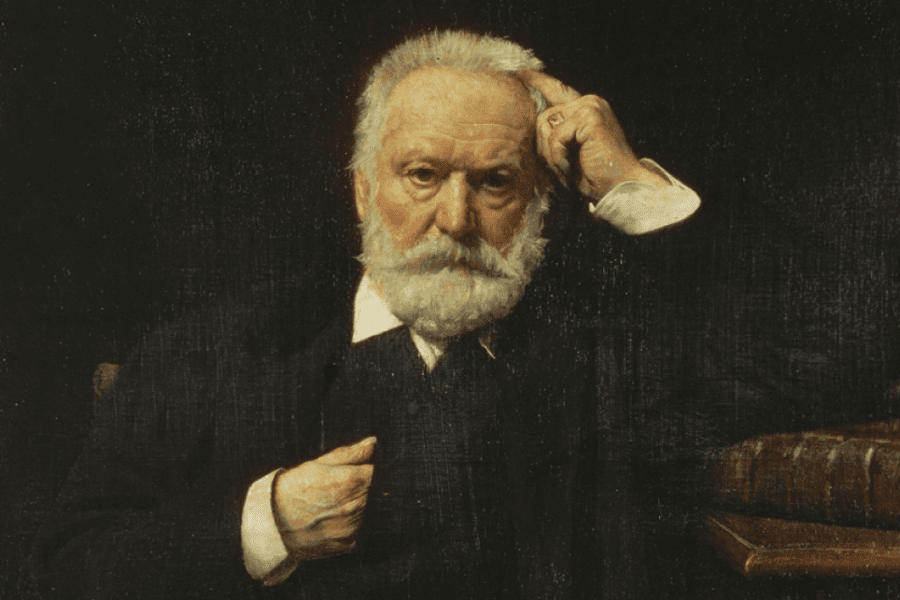
Space Traffic Management IELTS Listening Answers With Audio, Transcript And Explanation
Luyện tập đề IELTS Listening Practice với Space Traffic Management được lấy từ cuốn sách IELTS Cambridge 18 - Test 3 - Section 4 kèm Answer key, list từ vựng IELTS cần học trong bài đọc và Free PDF & Audio Transcript Download với trải nghiệm thi IELTS trên máy và giải thích đáp án chi tiết bằng Linearthinking.

Origami IELTS Listening Answers With Audio, Transcript And Explanation
Luyện tập đề IELTS Listening Practice với Origami được lấy từ cuốn sách IELTS Cambridge 18 - Test 4 - Section 3 kèm Answer key, list từ vựng IELTS cần học trong bài đọc và Free PDF & Audio Transcript Download với trải nghiệm thi IELTS trên máy và giải thích đáp án chi tiết bằng Linearthinking.

Một sản phẩm thuộc Học viện Tiếng Anh Tư Duy DOL English (IELTS Đình Lực) - www.dolenglish.vn
Trụ sở : Hẻm 458/14, đường 3/2, P12, Q10, TP.HCM
Hotline : 1800 96 96 39
Inbox : m.me/dolenglish.ieltsdinhluc
Theo dõi DOL tại

- Listening Overview
- Listening Tips
- Listening Online Practice
- Reading Overview
- Reading Tips
- Reading Online Practice
- GT Reading Online Practice
- Writing Overview
- Writing Tips
- Writing Common Mistakes
- Test Your Writing Skill
- Master Writing Task 1
- Writing Task 1 Essays
- Writing Task 2 Essays
- Writing Topics
- Speaking Overview
- Speaking Tips
- Band 7 in Speaking Test
- Speaking Test Summary/Audio
- Speaking Tests with answers
IELTS Listening Test 3 | 2017 Online Practice

Audio is playing. If there is no sound, try using another browser or device. Your browser does not support background sound.
- The library now has
- a seating area with magazines
- an expanded section for books on
- a new section on local
- a community room for meetings ( also possible to there)
- a new section of books for
- For younger children
- the next Science Club meeting: experiments using things from your
- Reading Challenge: read six books during the holidays
- this Friday: a local author talks about a novel based on a real
- IT support is available on Tuesdays – no is necessary
- free check of blood and cholesterol levels (over 60s only)
- Other information
- the library shop sells wall-charts, cards and
- evenings and weekends: free is available
- 16–30 years
- 31–42 years
- 43–54 years
- 55–64 years
- over 65 years
- Clients make new friends.
- Clients learn a useful skill.
- Clients learn about a different culture.
- Clients are excited by the risk involved.
- Clients find them good value for money.
PART 3 Questions 21-30 Questions 21 - 26 Label the flow-chart below. Choose the correct answers from the box. Choose the correct letter, A–H. A patterns B names C sources D questions E employees F solutions G headings H officials STAGES IN DOING A TOURISM CASE STUDY RESEARCH Locate and read relevant articles, noting key information and also 21 A B C D E F G H Identify a problem or need Select interviewees – these may be site 22 A B C D E F G H , visitors or city 23 A B C D E F G H Prepare and carry out interviews. If possible, collect statistics. Check whether 24 A B C D E F G H of interviewees can be used ANALYSIS Select relevant information and try to identify 25 A B C D E F G H Decide on the best form of visuals WRITING THE CASE STUDY Give some background before writing the main sections Do NOT end with 26 A B C D E F G H Questions 27 - 30 Choose the correct answer. The Horton Castle site 27 Natalie and Dave agree one reason why so few people visit Horton Castle is that the publicity is poor. it is difficult to get to. there is little there of interest. 28 Natalie and Dave agree that the greatest problem with a visitor centre could be covering the investment costs. finding a big enough space for it. dealing with planning restrictions. 29 What does Dave say about conditions in the town of Horton? There is a lot of unemployment. There are few people of working age. There are opportunities for skilled workers. 30 According to Natalie, one way to prevent damage to the castle site would be to insist visitors have a guide. make visitors keep to the paths. limit visitor numbers.
- Mercury (Hg)
- Highly toxic
- Released into the atmosphere from coal
- In water it may be consumed by fish
- It has also recently been found to affect birds which feed on
- Research on effects of mercury on birds
- Claire Varian-Ramos is investigating:
- – the effects on birds' or mental processes, e.g. memory
- – the effects on bird song (usually learned from a bird's )
- – songs learned by birds exposed to mercury are less
- – this may have a negative effect on birds'
- Lab-based studies:
- – allow more for the experimenter
- Implications for humans
- Migrating birds such as containing mercury may be eaten by humans
- Mercury also causes problems in learning
- Mercury in a mother's body from may affect the unborn child
- New regulations for mercury emissions will affect everyone's energy

IELTS Cambridge Book 12 Listening Practice Test 03 with Answers
Cambridge 12 test 3 listening answers, ielts listening practice test 3, section 1 questions 1 – 10.
Complete the notes below.
Write ONE WORD ONLY for each answer.
PUBLIC LIBRARY
Public library listening answers are below.
ADVERTISEMENT
SECTION 2 Questions 11 and 20
Questions 11 and 12
Choose TWO letters, A-E.
Which TWO age groups are taking increasing numbers of holidays with BC Travel?
A 16-30 years
B 31-42 years
C 43-54 years
D 55-64 years
E over 65 years
Questions 13 and 14
Which TWO are the main reasons given for the popularity of activity holidays?
A Clients make new friends.
B Clients learn a useful skill.
C Clients learn about a different culture.
D Clients are excited by the risk involved.
E Clients find them good value for money.
Questions 15 – 17
Choose the correct letter, A, B or C.
(15) How does BC Travel plan to expand the painting holidays?
A by adding to the number of locations
B by increasing the range of levels
C by employing more teachers
(16) Why are BC Travel’s cooking holidays unusual?
A They only use organic foods.
B They have an international focus.
C They mainly involve vegetarian dishes.
(17) What does the speaker say about the photography holidays?
A Clients receive individual tuition.
B The tutors are also trained guides.
C Advice is given on selling photographs.
Questions 18 – 20
Complete the table below.
Fitness Holidays
Section 3 questions 21 – 30.
Questions 21 – 26
Complete the flow-chart below
Choose SIX answers from the box and write the correct letter, A-H, next to Questions 21-26.
D questions
E employees
F solutions
H officials
STAGES IN DOING A TOURISM CASE STUDY
Questions 27 – 30
Choose the correct letter, A, B or C. The Horton Castle site
(27) Natalie and Dave agree one reason why so few people visit Horton Castle is that
A the publicity is poor.
B it is difficult to get to.
C there is little there of interest.
(28) Natalie and Dave agree that the greatest problem with a visitor centre could be
A covering the investment costs.
B finding a big enough space for it.
C dealing with planning restrictions.
(29) What does Dave say about conditions in the town of Horton?
A There is a lot of unemployment.
B There are few people of working age.
C There are opportunities for skilled workers.
(30) According to Natalie, one way to prevent damage to the castle site would be to
A insist visitors have a guide.
B make visitors keep to the paths.
C limit visitor numbers.
SECTION 4 Questions 31 – 40
The effects of environmental change on birds.
Mercury (Hg)
- Highly toxic
- Released into the atmosphere from coal
- In water it may be consumed by fish
- It has also recently been found to affect birds which feed on 31 …………..
Research on effects of mercury on birds
- Claire Varian-Ramos is investigating
– the effects on birds’ 32……………… or mental processes, e.g. memory
– the effects on bird song (usually learned from a bird’s 33 ……………. )
– songs learned by birds exposed to mercury are less 34 …………….
– this may have a negative effect on birds’ 35 …………..
- Lab-based studies
– allow more 36 …………… for the experimenter
Implications for humans
- Migrating birds such as 37……………. containing mercury may be eaten by humans
- Mercury also causes problems in learning 38 ……………
- Mercury in a mother’s body from 39 …………… may affect the unborn child
- New regulations for mercury emissions will affect everyone’s energy 40 ……………
The effects of environmental change on birds listening answers are below.
IELTS is jointly owned by three organizations: the British Council, IDP: IELTS Australia, and Cambridge Assessment English. These organizations work together to develop and administer the test worldwide. Enjoy Cambridge IELTS Practice Tests and Books 1-18 with free lessons.
You can book your IELTS Test on the official website of British Council or IDP or AEO . Once you have booked your IELTS Test with British Council, you will receive free access to last minute IELTS preparation course and free access to premium IELTS ready course. It includes 40 practice tests for IELTS Reading, writing, speaking, and listening.

Leave a Reply Cancel reply
Your email address will not be published. Required fields are marked *
Save my name, email, and website in this browser for the next time I comment.
- Preparing for IELTS
- Practice tests
Free online IELTS Listening practice tests
The IELTS Listening test will take about 30 minutes, and you will have an extra 10 minutes to transfer your answers to the answer sheet.
The four parts of this practice Listening test are presented over four separate web pages. Make sure you move swiftly from one page to the next so that your practice is as realistic as possible.
Download the question paper and blank answer sheet before you start, and write your answers on the question paper while you are listening. Use a pencil.
Listen to the instructions for each section of the test carefully. Answer all of the questions.There are 40 questions altogether. Each question carries one mark.
For each part of the test, there will be time for you to look through the questions and time for you to check your answers.When you have completed all four parts of the Listening test you will have ten minutes to copy your answers on to a separate answer sheet.
We can make special arrangements for test takers with disabilities. If you require a modified version of the test, for example, in Braille, contact your test centre three months in advance to discuss your requirements.
Instructions to test takers
In the actual test you will be given the following instructions:
- do not open this question paper until you are told to do so
- write your name and candidate number in the spaces at the top of this page
- listen to the instructions for each part of the paper carefully
- answer all the questions
- while you are listening, write your answers on the question paper
- you will have 10 minutes at the end of the test to copy your answers onto the separate answer sheet; use a pencil
At the end of the test you will be asked to hand in the question paper.
Once you have completed the practice test, download the answers and see how well you have done.

Describe a time when you tried to do something that were not very successful Cue Card

Describe a live sports match that you have watched cue card
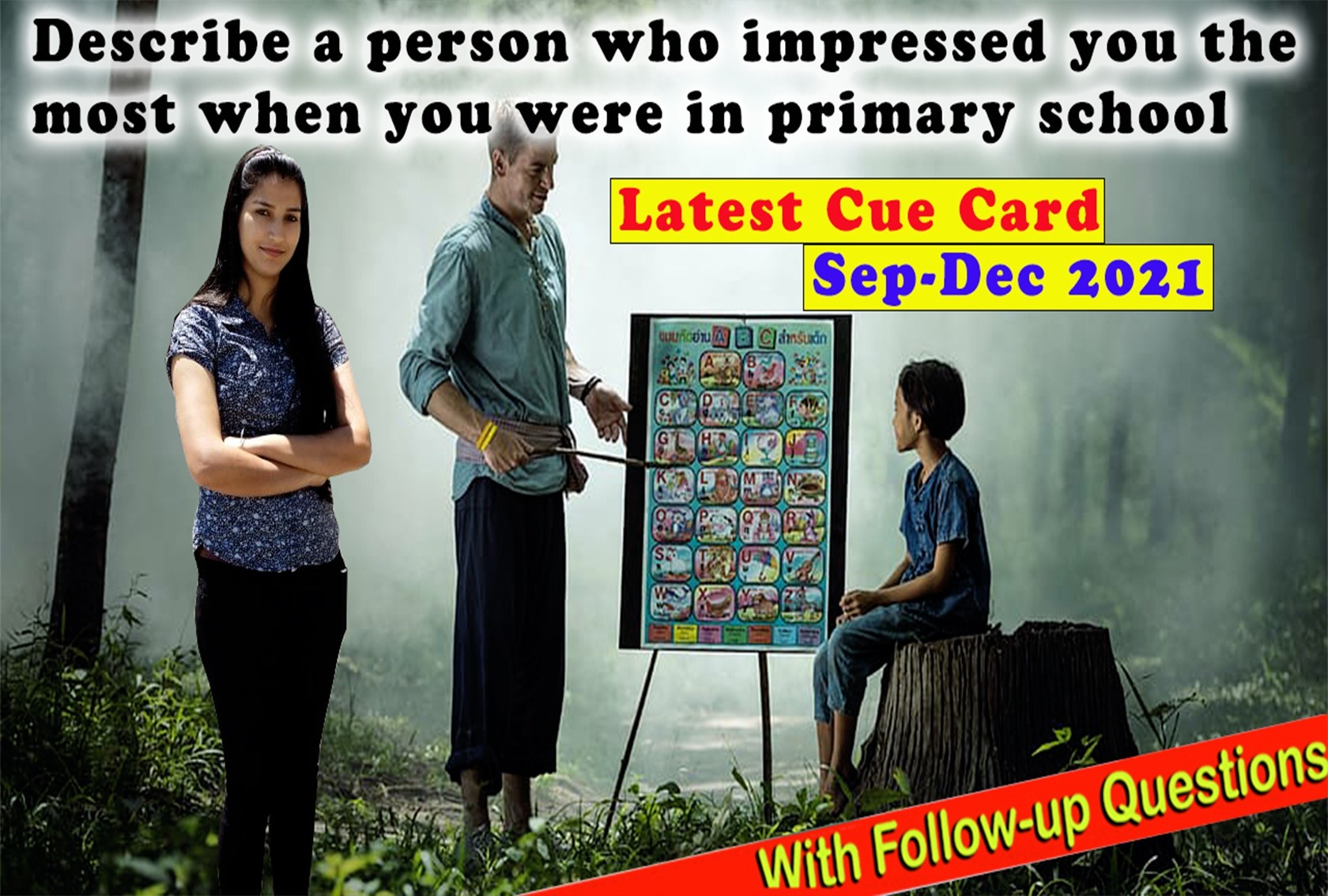
Describe a person who impressed you the most when you were in primary school Cue Card
Ielts listening practice test 25 with answers, actual exam listening.

IELTS Listening Practice Test 2 With Answers
Part 1 : questions 1-10.
Questions 1-10
Write ONE WORD ONLY for each answer.
Example: The library re-opened last __ month __The library now has
a seating area with magazines
an expanded section for books on 1……….
a new section on local 2……….
a community room for meetings (also possible to 3………..there)
a new section of books for 4……….
For younger children
the next Science Club meeting: experiments using things from your 5………
Reading Challenge: read six books during the holidays
this Friday: a local author talks about a novel based on a real 6………..
IT support is available on Tuesdays – no 7………. is necessary
free check of blood 8………. and cholesterol levels (over 60s only)
Other information
the library shop sells wall-charts, cards and 9………..
evenings and weekends: free 10……….. is available.
PART 2 : QUESTIONS 11-20
IELTS Academic Listening Practice Test 25 With Answers
Questions 11-12
Choose TWO letters, A-E.
Which TWO age groups are taking increasing numbers of holidays with BC Travel?
A. 16-30 years
B. 31-42 years
C. 43-54 years
D. 55-64 years
E. over 65 years
Questions 13-14
Which TWO are the main reasons given for the popularity of activity holidays?
A. Clients make new friends.
B. The Clients learn a useful skill.
C. Clients learn about a different culture.
D. The Clients are excited by the risk involved.
E. Clients find them good value for money.
Questions 15-17
Choose the correct letter, A, B or C .
15. How does BC Travel plan to expand the painting holidays?
A. by adding to the number of locations
B. *by increasing the range of levels
C. by employing more teachers
16. Why are BC Travel’s cooking holidays unusual?
A. They only use organic foods.
B. *They have an international focus.
C. They mainly involve vegetarian dishes.
17. What does the speaker say about the photography holidays?
A. Clients receive individual tuition.
B. The tutors are also trained guides.
C. Advice is given on selling photographs.
Questions 18-20
Complete the table below.
PART 3 : QUESTIONS 21-30
Questions 21-26
Complete the flow-chart below.
Choose SIX answers and write the correct letter, A-H , next to Questions 21-26 .
STAGES IN DOING A TOURISM CASE STUDY
Locate and read relevant articles, noting key information and also 21………..
Identify a problem or need
Select interviewees – these may be site 22………visitors or city 23……….
Prepare and carry out interviews. If possible, collect statistics.
Check whether 24……….. of interviewees can be used
Select relevant information and try to identify 25…………
Decide on the best form of visuals
WRITING THE CASE STUDY
Give some background before writing the main sections
Do NOT end with 26………..
Questions 27-30
The Horton Castle site
27. Natalie and Dave agree one reason why so few people visit Horton Castle is that
A. the publicity is poor.
B. it is difficult to get to.
C. there is little there of interest.
28. Natalie and Dave agree that the greatest problem with a visitor centre could be
A. covering the investment costs.
B. finding a big enough space for it.
C. dealing with planning restrictions.
29. What does Dave say about conditions in the town of Horton?
A. There is a lot of unemployment.
B. *There are few people of working age.
C. There are opportunities for skilled workers.
30. According to Natalie, one way to prevent damage to the castle site would be to
A. insist visitors have a guide.
B. make visitors keep to the paths.
C. limit visitor numbers.
PART 4 : QUESTIONS 31-40
Questions 31-40.
Complete the notes below.
Write ONE WORD ONLY for each answer .
The effects of environmental change on birds
Mercury (hg).
Highly toxic
Released into the atmosphere from coal
In water it may be consumed by fish
It has also recently been found to affect birds which feed on 31……..
Research on effects of mercury or binds
Claire varian-ramos is investigating.
the effects on birds’32……… or mental processes, e.g. memory
the effects on bird song (usually learned from a bird’s 33……….)
songs learned by birds exposed to mercury are less 34………..
this may have a negative effect on birds’35…………
Lab-based studies
allow more 36……….. for the experimenter
Implications for humans
Migrating birds such as 37……….. containing mercury may be eaten by humans
Mercury also causes problems in learning 38……….
Mercury in a mother’s body from 39………… may affect the unborn child
New regulations for mercury emissions will affect everyone’s energy 40………
Latest Articles
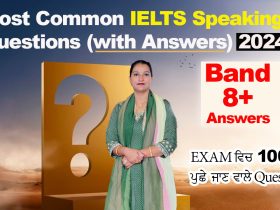
Important IELTS Speaking Questions

IELTS Speaking Jumbo Cue card 2024
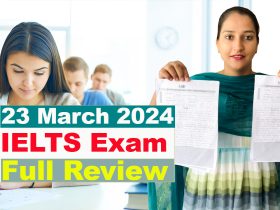
23 March IELTS Exam Review

Do and don’t in writing Task 2
Ielts listening practice test 30 with answers, ielts listening practice test 29 with answers, ielts listening practice test 28 with answers, ielts listening practice test 27 with answers.
Cambridge 12 Listening Test 7 Transcript
In this Cambridge IELTS Book 12 Listening Test 7 Audio Transcript post, you’ll find:

- Public library listening transcript
- BC travel fitness holidays listening transcript
- The Horton Castle site listening transcript
- The effects of environmental change on birds listening transcript
#1 Public library Transcript
The Part 1 audio script of Public library in Listening Test 7 is as follows:
SUSIE: Hello?
PAUL: Hi, Susie, it’s Paul here. How are you? Enjoying your new job? You’re working at the library, aren’t you?
SUSIE: Yes. I started when the library re-opened a month ago (Example) . It’s great.
PAUL: Actually Carol and I have been meaning to join for a while.
SUSIE: Oh, you should. It doesn’t cost anything, and the new library has all sorts of facilities. It’s not just a place where you borrow books. For instance, there’s an area with comfortable seats where you can sit and read the magazines they have there. Some people spend the whole morning there.
PAUL: Mmm. Wish I had that amount of time to spend!
SUSIE: Yes, you must be pretty busy at present, with the children and everything?
PAUL: We are, yes. But we’re hoping to get away this summer. We’re thinking of going to Greece.
SUSIE: Well, we’ve got a much larger section of the library devoted to travel books now (Q1) , so you should come and have a look. I can’t remember if there’s anything specifically on Greece, but I should think so.
PAUL: OK. Now Carol’s organising a project for the history class she teaches at school – it’s about life in the town a hundred years ago. Do you have anything that might be useful?
SUSIE: Yes, actually we’ve now got a new section with materials on the history of the town and surrounding region . (Q2)
PAUL: Right. I’ll tell her. You can’t always find that sort of thing on the internet. Now in the old library there used to be a separate room with reference books. It was a really nice quiet room.
SUSIE: Yes. We’ve put those books in the main part of the library now, but we do have a room called the community room. It can be hired out for meetings, but at other times people can use it to study . (Q3)
PAUL: I might use that. It’s hard to find anywhere quiet at home sometimes.
SUSIE: I can’t remember how old your son and daughter are … we’ve introduced a special section of fiction written specially for teenagers (Q4) , but they might be a bit young for that?
PAUL: Yes, they would be.
SUSIE: Well, we do have lots of activities for younger children.
PAUL: Yes?
SUSIE: For example we have a Science Club. At the next meeting, they’re going to be doing experiments with stuff that everyone has in the kitchen (Q5) – sugar and flour and so on.
PAUL: They might be interested, yes.
SUSIE: And we have a competition for children called Reading Challenge. That doesn’t begin until after the end of term. They have to read six books, and they get a certificate if they manage it.
PAUL: So that gives them something to do while they’re on holiday, instead of getting bored.
SUSIE: That’s the idea. And there are special activities for adults too. On Friday we have a local author called Tanya Streep who’s going to be talking about her new novel. It’s called ‘Catch the Mouse’ and she based the story on a crime that actually took place here years ago . (Q6)
PAUL: Right. We’re not free on Friday, but I’ll took out for the book.
SUSIE: Now this probably isn’t for you, but we do have IT support available for members. We get quite a few older people coming along who are wanting to get up to speed with computer technology. It’s on Tuesday mornings – they don’t need to make an appointment or anything, they just turn up . (Q7)
PAUL: Well, my mother might be interested, I’ll let her know.
SUSIE: OK. And there’s another service which you wouldn’t expect from a library, which is a free medical check-up. The hospital arranges for someone to come along and measure the level of sugar in your blood, and they check cholesterol levels at the same time . (Q8)
PAUL: Really?
SUSIE: Yes, but that’s only for the over-60s , so you wouldn’t qualify.
PAUL: OK. Well, I’ll tell my mother, she might be interested.
SUSIE: What other information … well, we do have a little shop with things like wallcharts and greetings cards, and also stamps (Q9) so you can post the cards straightaway, which is really useful.
PAUL: Yeah. Well, I’ll bring the children round at the weekend and we’ll join. Oh, one more thing – I’ll be bringing the car, is there parking available ? (Q10)
SUSIE: Yes, and it’s free in the evening and at weekends.
PAUL: Perfect. Well, thanks, Susie see you …
#2 BC travel fitness holidays Transcript
The Part 2 audio transcript of BC travel fitness holidays in Cambridge 12 Listening Test 7 is as follows:
In this session in your training day we’re going to look at home of the more specialised holidays we offer at BC Travel. Now, the travel business is very competitive and it’s important to be aware of how the market’s changing and developing. In terms of age groups, the over-65s are an important market, and one that’s increasing steadily year on year (Q11&Q12) .
The fewest holidays are taken by the 31 to 42-year-olds, and that figure shows no sign of rising. The biggest market at present is still the youngest group, the 16 to 30s, but this group’s also seen the biggest drop over the last few years, whereas there’s a noticeable growth in the number of holidays taken by the 55 to 64-year-olds (Q11&12) . As far as the 43 to 54-year-olds are concerned, bookings there are steady, but I have to say we haven’t seen the increase we expected.
One trend we’re noticing with nearly all age groups is the growing popularity of holidays in which clients do some kind of specialised activity. I’m not talking here about adventure holidays, where clients take part in high-risk activities like white water rafting just for the thrill of it. Activity holidays usually involve rather less high-risk sports, or things like art and music.
They’re not necessarily cheaper than ordinary holidays, often the opposite, in fact. But they do often take place outside the main tourist centres, which gives an opportunity for clients to find out more about the local people and customs (Q13&Q14) , and many say this is one of the most positive features of these holidays.
Of course, they offer the chance to develop a new skill or talent, but clients often say that more than this, it’s the chance to create lasting relationships with other like-minded people that’s the main draw. (Q13&Q14)
Let me give you some examples of BC Travel activity holidays. Our painting holidays take place in four different centres in France and Italy and they’re very popular with clients of all abilities from beginners onwards. We’ve got an excellent team of artists to lead the classes – some of them have been with us from the start, and five additional ones will be joining us this year (Q15) so that we can offer a greater number of classes in each centre.
As far as cooking classes on holidays are concerned, I know a lot of agents offer holidays where clients cook recipes related to one particular country, usually the one they’re staying in, but we focus on dishes from a great many different ones (Q16) . Apart from that, you’ll find the usual emphasis on good quality, organic ingredients – that’s more or less a given nowadays – and there are generally some meat-free recipes included.
Our photography holidays take place in a wide range of countries from Iceland to Vietnam, and clients have the opportunity to see some stunning scenery. Groups are small, no more than eight, so clients can have one-on-one tuition during the holiday (Q17) , and excursions are arranged with fully-trained guides. At the end of each holiday an exhibition is held of the photographs taken so that clients can see one another’s work and receive valuable feedback from the tutor.
Finally, let me tell you about our fitness holidays. In Ireland and Italy we run one-week general fitness classes for all ages and levels of fitness. Clients start the course with a consultation with a trainer, and together they draw up an individual programme. As well as improving general fitness, clients find that they end up losing much of the stress they’ve built up in their daily lives . (Q18)
In Greece, we have a two-week holiday for clients who want to do something about their weight (Q19) . This has all the features you’d expect, like a personalised diet programme, but one of its most popular features is that the exercise classes are all held on the beach. People say it’s far preferable to being in a gym.
Finally, we offer several holidays in Morocco. One very popular one is the mountain biking holiday. Bikes are provided and there are different routes according to people’s ability. We offer one which is tailored to the needs of families (Q20) , which is particularly popular.
OK, so that’s about all the time I have today, so thank you very much …

#3 The Horton Castle site Transcript
The Part 3 audio transcript of The Horton Castle site in Cambridge 12 Listening Test 7 is as follows:
NATALIE: Dave, I’m worried about our case study. I’ve done a bit of reading, but I’m not sure what’s involved in actually writing a case study – I missed the lecture where Dr Baker talked us through it.
DAVE: OK, well it’s quite straightforward. We’ve got our focus – that’s tourism at the Horton Castle site. And you said you’d done some reading about it.
NATALIE: Yes, I found some articles and made notes of the main points.
DAVE: Did you remember to keep a record of where you got the information from? (Q21)
NATALIE: Sure. I know what a pain it is when you forget that.
DAVE: OK, so we can compare what we’ve read. Then we have to decide on a particular problem or need at our site. And then think about who we’re going to interview to get more information.
NATALIE: OK. So who’d that be? The people who work there (Q22) ? And presumable some of the tourists too?
DAVE: Yes, both those groups. So we’ll have to go to the site to do that, I suppose. But we might also do some of our interviewing away from the site – we could even contact some people here in the city, like administrators involved in overseeing tourism . (Q23)
NATALIE: OK. So we’ll need to think about our interview questions and fix times and places for the meetings. It’s all going to take a lot of time.
DAVE: Mmm. And if we can, we should ask our interviewees if they can bring along some numerical data that we can add to support our findings.
NATALIE: And photographs?
DAVE: I think we have plenty of those already. But Dr Baker also said we have to establish with our interviewees whether we can identify them in our case study, or whether they want to be anonymous . (Q24)
NATALIE: Oh, I wouldn’t have thought of that. OK, once we’ve got all this information, I suppose we have to analyse it.
DAVE: Yes, put it all together and choose what’s relevant to the problem we’re focusing on, and analyse that carefully to find out if we can identify any trends or regularities (Q25) there. That’s the main thing at this stage, rather can concentrating on details or lots of facts.
NATALIE: OK. And then once we’ve analysed that, what next?
DAVE: Well, then we need to think about what we do with the data we’ve selected to make it as clear as possible to our readers. Things like graphs, or tables, or charts.
NATALIE: Right.
DAVE: Then the case study itself is mostly quite standard; we begin by presenting the problem, and giving some background, then go through the main sections, but the thing that surprised me is that in a normal report we’d end with some suggestions to deal with the problem or need we identified, but in a case study we end up with a question or a series of questions to our readers, and they decide what ought to be done . (Q26)
NATALIE: Oh, I hadn’t realised that.
NATALIE: So basically, the problem we’re addressing in our case study of the Horton Castle site is why so few tourists are visiting it. And we’ll find out more from our interviews, but I did find one report on the internet that suggested that one reason might be because as far as transport goes, access is difficult.
DAVE: I read that too, but that report was actually written ten years ago, when the road there was really bad, but that’s been improved now. And I think there’s plenty of fascinating stuff there for a really good day out, but you’d never realise it from the castle website – maybe that’s the problem . (Q27)
NATALIE: Yes, it’s really dry and boring.
DAVE: I read somewhere a suggestion that what the castle needs is a visitor centre. So we could have a look for some information about that on the internet. What would we need to know?
NATALIE: Well, who’d use it for a start. It’s be good to know what categories the visitors fell into too, like school parties or retired people, but I think we’d have to talk to staff to get that information.
DAVE: OK. And as we’re thinking of suggesting a visitor centre we’d also have to look at potential problems. I mean, obviously it wouldn’t be cheap to set up.
NATALIE: No, but it could be a really good investment. And as it’s on a historical site it’d need to get special planning permission, I expect. That might be hard . (Q28)
DAVE: Right, especially as the only possible place for it would be at the entrance, and that’s right in front of the castle.
NATALIE: Mmm.
DAVE: But it could be a good thing for the town of Horton. At present it’s a bit of a ghost town. Once they’ve left school and got any skills or qualifications, the young people all get out as fast as they can to get jobs in the city, and the only people left are children and those who’ve retired . (Q29)
NATALIE: Right. Something else we could investigate would be the potential damage that tourists might cause to the castle site, I mean their environmental impact. At present the tourists can just wander round wherever they want, but if numbers increase, there might have to be some restrictions, like sticking to marked ways. And there’d need to be guides and wardens around to make sure these were enforced. (Q30)
DAVE: Yes, we could look at that too. OK, well …
#4 Effects of environmental change on birds Transcript
The Part 4 audio script of Effects of environmental change on birds in Listening Test 7 is as follows:
OK, so we’ve been looking at how man-made changes in our environment can affect wildlife. Now I’ll discuss a particular example. Let’s take a look at mercury. Mercury’s one of the 120 or so elements that make up all matter, and it has the symbol Hg. It’s a shiny, silvery substance. You may have seen it in old-fashioned thermometers, but it’s not used much for domestic purposes now because it’s highly toxic.
But the problem is that the amount of mercury in the environment’s increasing. The main reason for this is the power plants used to produce electricity. The main source of energy that most of them use is still coal, and when it’s burned it releases mercury into the atmosphere.
Some of this gets deposited into lakes and rivers, and if it’s ingested by a fish it’s not excreted, it stays in the fish’s body and it enters the food chain. So it’s been known for some time that birds which eat fish may be affected, but what wasn’t known until quite recently is that those that eat insects can also be affected . (Q31)
So a woman called Claire Varian-Ramos is doing some research on how this is affecting birds.
And rather than looking at how many birds are actually killed by mercury poisoning, she’s looking for more subtle sub-effects. T hese may be to do with the behaviour of the birds, or with the effect of mercury on the way their brain works, so whether it leads to problems with memory, for example (Q32) . And she’s particularly focusing on the effects of mercury on bird song. Now, the process of song learning happens at a particular stage in the birds’ development, and what you may not know is that a young bird seems to acquire this skill by listening to the songs produced by its father (Q33) , rather than by any other bird.
And Varian-Ramos has already found in her research that if young male birds are exposed to mercury, if they eat food contaminated with mercury, then the songs they produce aren’t as complex as those produced by other birds (Q34) . So quite low-level exposure to mercury is likely to have an impact on male birds in a natural situation, because it can mean that they’re less attractive to female birds, and so it can affect their chances of reproduction . (Q35)
Now the way she’s carrying out this research is worth thinking about. She’s using a mixture of studies using birds kept in laboratories, and studies carried out outdoors in the wild. The lab-based studies have the advantage that you don’t get all the variables you would in a natural setting, so the experimenter has a much higher level of control (Q36) , and that means they can be more confident about their results in some ways. And of course they don’t have to worry about going out and finding the birds in order to observe them.
So what are the implications here for humans? Well, because many birds are migratory, they may be transporting mercury far from contaminated sites. For example, it’s been found that ducks who’d been feeding at a contaminated site were later shot by hunters over a thousand kilometres away, and presumably eaten (Q37) . But these birds likely had mercury levels high enough to warrant concern for human consumption.
In addition, going back to song learning by birds, we saw that this may be affected by mercury contamination. Well, we also know that in humans, mercury causes developmental delays in the acquisition of language (Q38) , and in fact this process is very similar in the brain regions it involves and even the genes that are involved. But mercury contamination has other important implication for humans as well. It’s now known that an unborn child can be affected if the food eaten by its mother contains high levels of mercury (Q39) , and these effects can be quite substantial.
In the end, it comes down to whether more value is placed on human economic wellbeing or environmental wellbeing. It’s true there are new regulations for mercury emissions from power plants, but these will need billions of dollars to implement, and increase costs for everyone (Q40) . Some argue that’s too much to pay to protect wildlife. But as we’ve seen, the issues go beyond that, and I think it’s an issue we need to consider very carefully.
I hope you find this Cambridge 12 Listening Test 7 Transcript useful in your IELTS preparation. If you want complete Cambridge Listening transcripts from all booklets released till date, then simply click on the button below:
Also, you can check out the Cambridge 12 Listening Test 7 Answer Key ↗ to validate your answers.
Don’t forget to share this post with your IELTS buddies.
ALL THE BEST!
About Cambridge IELTS 12
Cambridge 12 booklet contains four authentic IELTS previous year papers from Cambridge English Language Assessment, providing excellent practice for the examination. This booklet with answers allows students to familiarise themselves with IELTS format and to practise examination techniques using real test structures.
Disclosure: We sometimes use affiliate links in our content. Please read our affiliate policy to know more.
Leave a Comment Cancel reply
Save my name, email, and website in this browser for the next time I comment.
IELTS TEST TYPES
✓ IELTS Academic
✓ IELTS General Training
USEFUL LINKS
✓ IELTS Full Form
✓ IELTS Band Score
✓ IELTS Vocabulary
✓ IELTS Grammar
CONNECT WITH US
Pinterest ↗
IELTS® is a registered trademark of The British Council, IDP- IELTS Australia and the University of Cambridge ESOL Examinations (Cambridge ESOL). This site and its owners are not affiliated, approved or endorsed by the University of Cambridge ESOL, the British Council, IELTS Progress Check, and IDP Education Australia. "IELTS Progress Check" is the name of the official IELTS online practice test and is in no way affiliated with this website. To find out more about the official IELTS online practice test please visit https://www.ieltsprogresscheck.com/.
ABOUT US | PRIVACY POLICY | DISCLAIMER | TERMS | CONTACT US
© 2023 IELTSPROGRESS.COM | All Rights Reserved

free ielts tests - online simulation - practice with solution
IELTS Listening Test Tips!
Previous Listening Test
Restart This Test in a New Window!
Next Listening test
IELTS Listening Test 7
Job application form: pembroke cycling holidays , applicant information:, contact details:.

Time’s up
Questions 11 and 12 Choose two letters A-E Which TWO age groups are taking increasing numbers of holidays with BC travel?
Questions 13 and 14 Choose two letters A-E Which TWO are the main reasons given for the popularity of activity holidays?
Questions 15-17 Choose the correct letter, A, B or C. 15. How does BC Travel plan to expand the painting holidays?
16. Why are BC Travel’s cooking holidays unusual?
17. What does the speaker say about the photography holidays?
Questions 21 to 23 Complete the notes below. Write NO MORE THAN TWO WORDS AND/OR A NUMBER for each answer. Presentation focus: 21. animals Presentation time: 20 minutes Pros: Plenty of 22. for the presentation; interesting subject Cons: Difficult to 23.
For questions 24 to 26, which THREE ways does the tutor suggest Katie and Ian can improve their presentation?
Questions 27 to 30. Complete the notes below. Write NO MORE THAN TWO WORDS AND/OR A NUMBER for each answer. Flexible spine for taking 27. Yellow fur with black 28. spots Tail: Dark rings on 29. part Sharp, 30. claws
Workplace Conflicts
The chief executives (ceos), with other managers, minimising conflict.
1. temporary
7. Arbuthnot
10. talk/presentation
20. families
21. nocturnal
22. visual aids
23. narrow down
27. long strides
28. donut shaped
30. rectractable
31. bullying
32. superiority
33. personality
34. structural
35. absence
36. confidence
37. visions
38. democratic
39. respect
40. mediator
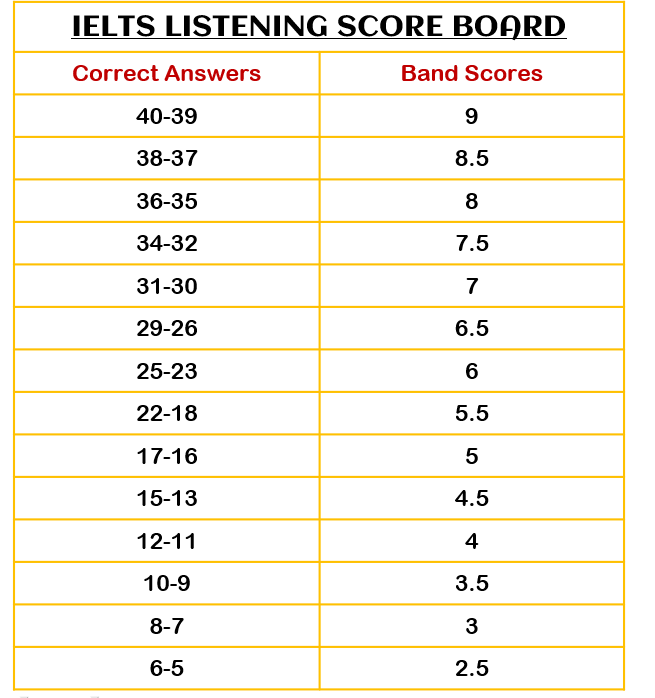
Looks like you are using an ad-blocker. We request you disable the ad-blocker and refresh your browser to view the content.
C12 LISTENING 3 AC
Questions 1 - 10.
Complete the notes below.
Write ONE WORD ONLY for each answer.
Questions 11 - 12
Choose TWO letters, A-E .
Which TWO age groups are taking increasing numbers of holidays with BC Travel?
- A 16-30 years
- B 31-42 years
- C 43-54 years
- D 55-64 years
- E over 65 years
Questions 13 - 14
- A Clients make new friends.
- B Clients learn a useful skill.
- C Clients learn about a different culture.
- D Clients are excited by the risk involved.
- E Clients find them good value for money.
Question (15)
Choose the correct letter, A, B or C.
How does BC Travel plan to expand the painting holidays?
- A by adding to the number of locations
- B by increasing the range of levels
- C by employing more teachers
Why are BC Travel’s cooking holidays unusual?
- A They only use organic foods.
- B They have an international focus.
- C They mainly involve vegetarian dishes.
What does the speaker say about the photography holidays?
- A Clients receive individual tuition.
- B The tutors are also trained guides.
- C Advice is given on selling photographs.
Questions 18 - 20
Complete the table below.
Fitness Holidays
Questions 21 - 26.
Complete the flow-chart below
Choose SIX answers from the box and write the correct letter, A-H , next to Questions 21-26 .
Question (27)
The horton castle site.
Natalie and Dave agree one reason why so few people visit Horton Castle is that
- A the publicity is poor.
- B it is difficult to get to.
- C there is little there of interest.
Natalie and Dave agree that the greatest problem with a visitor centre could be
- A covering the investment costs.
- B finding a big enough space for it.
- C dealing with planning restrictions.
What does Dave say about conditions in the town of Horton?
- A There is a lot of unemployment.
- B There are few people of working age.
- C There are opportunities for skilled workers.
According to Natalie, one way to prevent damage to the castle site would be to
- A insist visitors have a guide.
- B make visitors keep to the paths.
- C limit visitor numbers.
Questions 31 - 40
End of the test, login details.
- User Details
- Education Details
Create your account
Personal details, we will never sell it, tell us about education status.
Search form
- A2 listening
Travelling abroad

Listen to the five airport announcements and do the exercises to practise and improve your listening skills.
Instructions
Do the preparation exercise before you listen. Then do the other exercises to check your understanding.
Preparation
Do this exercise before you listen.
Good morning. This is an announcement for all passengers travelling on the 9:25 flight TOM1223 to Rome. This flight is delayed by two hours because of bad weather.
Would all passengers travelling to Tokyo on flight FR3421 please have your boarding passes and passports ready for boarding. Flight FR3421 now boarding at gate 21.
This is the final boarding call for passengers Gemma and Ryan Grey flying to Athens on flight EZ9753. Your flight is ready to leave. Please go to gate 14 immediately. The doors of the plane will close in five minutes. Final boarding call for passengers Gemma and Ryan Grey.
This is an announcement for passengers travelling to Amsterdam on flight KL1050. Will all passengers with express boarding tickets and passengers travelling with young children please go to gate 6 for boarding. That's all passengers with express boarding tickets and passengers travelling with young children go to gate 6 for boarding. Thank you.
Good evening, ladies and gentlemen. We have landed at JFK airport in New York where the local time is 18:30 and the temperature is 76º. We hope you have enjoyed your flight with American Airlines this evening and wish you a very safe journey to your final destination.
Check your understanding: matching
Check your understanding: typing, worksheets and downloads.
Tell us about the last time you took a flight somewhere!

Sign up to our newsletter for LearnEnglish Teens
We will process your data to send you our newsletter and updates based on your consent. You can unsubscribe at any time by clicking the "unsubscribe" link at the bottom of every email. Read our privacy policy for more information.

IELTS Mock Test 2023 February
- Published on: 28 Feb 2023
- Tests taken: 812,558
Answer Keys:
Part 1: Question 1 - 10
- 1 travel/travel(l)ing
- 4 teenagers
- 7 appointment/booking
Part 2: Question 11 - 20
- 20 families
Part 3: Question 21 - 30
Part 4: question 31 - 40.
- 32 behaviour/behavior
- 34 complex/complicated
- 35 reproduction/breeding
- 38 language
Review your test now?
Leaderboard:
Share your score
Tips for improving your ielts score

How to get good score in IELTS reading
The IELTS reading test is not really a reading test. Sure you need to use reading skills like skimming and scanning but, lots of people have...
14 Jul 2018
Scan below QR code to share with your friends
Review & Explanations:
Questions 1-10
Write ONE WORD ONLY for each answer.
Questions 11-12
Choose TWO letters, A-E.
Which TWO age groups are taking increasing numbers of holidays with BC Travel?
- A 16-30 years
- B 31-42 years
- C 43-54 years
- D 55-64 years
- E over 65 years
Questions 13-14
Which TWO are the main reasons given for the popularity of activity holidays?
- A Clients make new friends.
- B Clients learn a useful skill.
- C Clients learn about a different culture.
- D Clients are excited by the risk involved.
- E Clients find them good value for money.
Questions 15-17
Choose the correct letter, A, B or C .
How does BC Travel plan to expand the painting holidays?
- A by adding to the number of locations
- B by increasing the range of levels
- C by employing more teachers
Why are BC Travel’s cooking holidays unusual?
- A They only use organic foods.
- B They have an international focus.
- C They mainly involve vegetarian dishes.
What does the speaker say about the photography holidays?
- A Clients receive individual tuition.
- B The tutors are also trained guides.
- C Advice is given on selling photographs.
Questions 18-20
Complete the table below.
Questions 21-26
Complete the flow-chart below.
Choose SIX answers and write the correct letter, A-H , next to Questions 21-26 .
Questions 27-30
The horton castle site.
Natalie and Dave agree one reason why so few people visit Horton Castle is that
- A the publicity is poor.
- B it is difficult to get to.
- C there is little there of interest.
Natalie and Dave agree that the greatest problem with a visitor centre could be
- A covering the investment costs.
- B finding a big enough space for it.
- C dealing with planning restrictions.
What does Dave say about conditions in the town of Horton?
- A There is a lot of unemployment.
- B There are few people of working age.
- C There are opportunities for skilled workers.
According to Natalie, one way to prevent damage to the castle site would be to
- A insist visitors have a guide.
- B make visitors keep to the paths.
- C limit visitor numbers.
Questions 31-40
Complete the notes below.
You will hear a man telephoning a friend to find out about their local Public Library. First, you have some time to look at questions 1 to 4. You will see that there is an example that has been done for you. On this occasion only the conversation relating to this will be played first.
Susie: Hello?
Paul: Hi, Susie, it's Paul here. How are you? Enjoying your new job? You're working at the library, aren’t you?
Susie: Yes, I started when the library reopened a month ago. It’s great.
The woman says that the library reopened a month ago. So month has been written in the space. Now we shall begin, you should answer the questions as you listen because you will not hear the recording a second time. Listen carefully and answer questions 1 to 4.
Paul: Actually, Carol and I have been meaning to join for a while.
Susie: Oh, you should. It doesn't cost anything, and the new library has all sorts of facilities. It's not just a place where you borrow books. For instance, there's an area with comfortable seats where you can sit and read the magazines they have there. Some people spend the whole morning there.
Paul: Mmm. Wish I had that amount of time to spend!
Susie: Yes, you must be pretty busy at present, with the children and everything?
Paul: We are..., yes. But we're hoping to get away this summer. We're thinking of going to Greece.
Susie: Well, we've got a much larger section of the library devoted to travel books now. So you should come and have a look. I can't remember if there's anything specifically on Greece, but I should think so.
Paul: OK. Now Carol's organising a project for the history class she teaches at school. It's about life in the town a hundred years ago. Do you have anything that might be useful?
Susie: Yes. Actually, we've now got a new section with materials on the history of the town and surrounding region.
Paul: Right. I'll tell her. You can't always find that sort of thing on the internet. Now in the old library there used to be a separate room with reference books. It was a really nice quiet room.
Susie: Yes we've put those books in the main part of the library now, but we do have a room called the community room, it can be hired out for meetings. But at other times people can use it to study .
Paul: I might use that. It's hard to find anywhere quiet at home sometimes.
Susie: I can't remember how old your son and daughter… We've introduced a special section of fiction written specially for teenagers . But they might be a bit young for that?
Paul: Yes, they would be.
Before you hear the rest of the conversation, you have some time to look at questions 5 to 10. Now listen and answer questions 5 to 10.
Susie: Well we do have lots of activities for younger children.
Susie: For example, we have a Science club. At the next meeting, they're going to be doing experiments with stuff that everyone has in the kitchen - sugar and flour and so on.
Paul: They might be interested, yes.
Susie: And, we have a competition for children called Reading Challenge. That doesn't begin until after the end of term.They have to read six books and they get a certificate if they manage it.
Paul: So that gives them something to do while they're on holiday, instead of getting bored.
Susie: That's the idea. And their special activities for adults, too. On Friday, we have a local author called Tanya Streep who's going to be talking about her new novel. It's called “Catch the mouse” and she based the story on a crime that actually took place here years ago.
Paul: Right. We're not free on Friday, but I'll look out for the book.
Susie: Now this probably isn't for you. But we do have IT support available for members. We get quite a few older people coming along who are wanting to get up to speed with computer technology. It's on Tuesday mornings- they don't need to make an appointment or anything, they just turn up.
Paul: Well, my mother might be interested, I'll let her know.
Susie: OK. And there's another service which you wouldn't expect from a library which is a free medical check-up. The hospital arranges for someone to come along and measure the level of sugar in your blood, and they check cholesterol levels at the same time.
Paul: Really?
Susie: Yes, but that's only for the over 60s, so you wouldn't qualify.
Paul: OK. Well, I'll tell my mother she might be interested.
Susie: What other information…. Well, we do have a little shop with things like wall charts and greetings cards, and also stamps so you can post the cards straight away, which is really useful.
Paul: Yeah. Well I'll bring the children round at the weekend and we’ll join. Oh, one more thing, I'll be bringing the car, is there parking available?
Susie: Yes. And it's free in the evening and at weekends.
Paul: Perfect. Well thanks, Susie see you…
That is the end of Part one, you now have half a minute to check your answers. You now turn to Part 2.
You will hear part of a training session for new employees at a large travel company. First you have some time to look at questions 11 to 17. Now listen carefully and answer questions 11 to 17.
In this session in your training day we're going to look at some of the more specialized holidays we offer at BC travel now, the travel business is very competitive and it's important to be aware of how the markets changing and developing. In terms of age groups, the over 65s are an important market, and one that's increasing steadily year-on-year. The fewest holidays are taken by the 31 to 42-year-olds, and that figure shows no sign of rising. The biggest market at present is still the youngest group, the 16 to 30s, but this groups also seen the biggest drop over the last few years, whereas there's a noticeable growth in the number of holidays taken by the 55 to 64-year-olds. As far as the 43 to 54-year-olds are concerned, bookings there are steady, but I have to say we haven't seen the increase we expected.
One trend we're noticing with nearly all age groups is the growing popularity of holidays in which clients do some kind of specialized activity. I'm not talking here about adventure holidays, where clients take part in high-risk activities like whitewater rafting just for the thrill of it. Activity holidays usually involve rather less high-risk sports, or things like art and music . They're not necessarily cheaper than ordinary holidays, often the opposite, in fact. But they do often take place outside the main tourist centers, which gives an opportunity for clients to find out more about the local people and customs, and many say this is one of the most positive features of these holidays. Of course, they offer the chance to develop a new skill or talent, but clients often say that more than this, it's the chance to create lasting relationships with other like-minded people that's the main draw.
Let me give you some examples of BC travel activity holidays. Our painting holidays take place in four different centers in France and Italy and they're very popular with clients of all abilities from beginners onwards. We've got an excellent team of artists to lead the classes- some of them have been with us from the start, and five additional ones will be joining us this year so that we can offer a greater number of classes in each Center.
As far as cooking holidays are concerned I know a lot of agents offer holidays where clients cook recipes related to one particular country usually the one they're staying in. But we focus on dishes from a great many different ones. Apart from that, you'll find the usual emphasis on good quality, organic ingredients- that's more or less a given nowadays- and there are generally some meat- free recipes included.
Our photography holidays take place in a wide range of countries from Iceland to Vietnam, and clients have the opportunity to see some stunning scenery. Groups are small, no more than eight. So clients can have one-on-one tuition during the holiday. And excursions are arranged with fully- trained guides. At the end of each holiday and exhibition is held of the photographs taken so that clients can see one another's work and receive valuable feedback from the tutor.
Before you hear the rest of the training session you have some time to look at questions 18 to 20. Now listen and answer questions 18 to 20.
Finally, let me tell you about our. Fitness holidays in Ireland and Italy we run one-week general fitness classes for all ages and levels of fitness. Clients start the course with a consultation with a trainer, and together they draw an individual programmer. As well as improving general fitness, clients find that they end up losing much of the stress they've built up in their daily lives.
In Greece, we have a two-week holiday for clients who want to do something about their weight . This has all the features you'd expect, like a personalized diet program. But one of its most popular features is that the exercise classes are all held on the beach. People say it's far preferable to being in a gym.
Finally, we offer several holidays in Morocco. One very popular one is the mountain biking holiday. Bikes are provided and there are different routes according to people's ability. We offer one which is tailored to the needs of families , which is particularly popular.
OK, so that's about all the time I have today, so thank you very much…
That is the end of Part 2 now have half a minute to check your once's you now turn to Part 3
You will hear to tourism students called Natalie and Dave talking about the tourism case study they are doing. First you have some time to look at questions 21 to 26. Now listen carefully and answer questions 21 to 26.
Natalie: Dave, I'm worried about our case study. I've done a bit of reading, but I'm not sure what's involved in actually writing a case study. I missed the lecture where Dr. Baker talked us through it.
Dave: OK, well it's quite straightforward. We've got our focus- that's tourism at the Horten castle site. And you said you done some reading about it.
Natalie: Yes, I found some articles and made notes of the main points.
Dave: Did you remember to keep a record of where you got the information from?
Natalie: Sure. I know what a pain it is when you forget that.
Dave: OK, so we can compare what we've read. Then we have to decide on a particular problem or need at our site. And then think about who we're going to interview to get more information.
Natalie: OK. So who'd that be? The people who work there ? And presumably some of the tourists too?
Dave: Yes, both those groups. So we'll have to go to the sites to do that, I suppose. But we might also do some of our interviewing away from the site. We could even contact some people here in the city, like administrators involved in overseeing tourism.
Natalie: OK. So we'll need to think about our interview questions and fix times and places for the meetings. It's all going to take a lot of time.
Dave: Mmm. And if we can we should ask our interviewees if they can bring along some numerical data that we can add to support our findings.
Natalie: And photographs?
Dave: I think we have plenty of those already. But Dr. Baker also said we have to establish with our interviewees whether we can identify them in our case study. Or whether they want to be anonymous.
Natalie: Oh, I wouldn't have thought of that. OK, once we've got all this information, I suppose we have to analyze it.
Dave: Yes, put it all together and choose what's relevant to the problem we're focusing on. And analyze that carefully to find out if we can identify any trends or regularities there. That's the main thing at this stage, rather than concentrating on details or lots of facts.
Natalie: OK. And then once we've analyzed that, what next?
Dave: Well, then we need to think about what we do with the data we've selected to make it as clear as possible to our readers. Things like graphs, or tables, or charts.
Natalie: Right.
Dave: Then the case study itself is mostly quite standard, we begin by presenting the problem, and giving some background, then go through the main sections, but the thing that in a normal report we'd end with some suggestions to deal with the problem or need we identified, but in a case study we end up with a question or a series of questions to our readers, and they decide what ought to be done.
Natalie: Oh, I hadn't realized that.
Before you hear the rest of the discussion you have some time to look at questions 27 to 30 you now listen and answer questions 27 to 30.
Natalie: So basically, the problem we're addressing in our case study of the horton castle site is why so few tourists are visiting it. And we'll find out more from our interviews, but I did find one report on the internet that suggested that one reason might be because as far as transport goes, access is difficult.
Dave: I read that too, but that reports was actually written ten years ago, when the road there was really bad. But that's been improved now. And I think there's plenty of fascinating stuff there for a really good day out. But you'd never realize it from the castle website- maybe that's the problem.
Natalie: Yes. It's really dry and boring.
Dave: I read somewhere a suggestion that what the castle needs is a visitor center. So we could have a look for some information about that on the Internet. What would we need to know?
Natalie: Well, who'd use it for a start. It would be good to know what categories the visitors fell into too, like school parties or retired people, but I think we'd have to talk to staff to get that information.
Dave: OK. And as we're thinking of suggesting a visitor center we'd also have to look at potential problems. I mean, obviously it wouldn't be cheap to set up.
Natalie: No, but it could be a really good investment. And as it's on a historical site it did need to get special planning permission. I expect. That might be hard.
Dave: Right, especially is the only possible place for it would be at the entrance, and that's right in front of the castle.
Natalie: Mmm.
Dave: But it could be a good thing for the town of Horton. At present, it's a bit of a ghost town. Once they left school and got any skills or qualifications, the young people all get out as fast as they can to get jobs in the city. And the only people left children and those who've retired.
Natalie: Right. Something else we could investigate would be the potential damage that tourists might cause to the castle site, I mean their environmental impact. At present the tourists can just wander around wherever they want, but if numbers increase, there might have to be some restrictions, like sticking to marked ways. And there’d need to be guides and wardens around to make sure these are enforced.
Dave: Yes, we could look at that too. OK, well…
That is the end of Part three you, now have half a minute to check your answers you now turn to Part four .
You will hear a lecturer on an environmental studies course discussing how birds are affected by environmental change. First you have some time to look at questions 31 to 40. You now listen carefully and answer questions 31 to 40.
Okay, so we've been looking at how man-made changes in our environment can affect wildlife. Now I'll discuss a particular example. Let’s take a look at mercury. Mercury's one of the 120 or so elements that make up all matter, and it has the symbol Hg. It's a shiny, silvery substance. You may have seen it in old-fashioned thermometers, but it's not used much for domestic purposes now because it's highly toxic.
But the problem is that the amount of mercury in the environments increasing. The main reason for this is the power plants used to produce electricity. The main source of energy that most of them use is still coal, and when it's burned it releases mercury into the atmosphere. Some of this gets deposited into lakes and rivers, and if it's ingested by a fish it's not excreted, it stays in the fish's body and it enters the food chain. So it's been known for some time that birds which eat fish may be affected but what wasn't known until quite recently is that those that eat insects can also be affected.
So a woman called Claire Varian Ramos is doing some research on how this is affecting birds.
And rather than looking at how many birds are actually killed by mercury poisoning, she's looking for more subtle sub-effects. And these may be to do with the behavior of the birds, or with the effect of mercury on the way their brain works, so whether it leads to problem with memory, for example. And she's particularly focusing on the effects of mercury on bird song. Now, the process of song learning happens at a particular stage in the birds’ development, and what you may not know is that a young bird seems to acquire this skill by listening to the songs produced by its father , rather than by any other bird.
And Varion Ramos has already found in her research that if young male birds are exposed to mercury. If they eat food contaminated with Mercury. Then the songs they produce aren't as complex as those produced by other birds. So quite low-level exposure to mercury is likely to have an impact on male birds, in a natural situation, because it can mean that they're less attractive to female birds, and so it can affect their chances of reproduction .
Now the way she’s is carrying out this research is worth thinking about. She‘s using a mixture of studies using birds kept in laboratories, and studies carried out outdoors in the wild. The lab- based studies have the advantage that you don't get all the variables you would in a natural setting. So the experimenter has a much higher level of control , and that means they can be more confident about their results in some ways. And of course they don't have to worry about going out and finding the birds in order to observe them.
So what are the implications here for humans? Well, because many birds are migratory, they may be transporting mercury far from contaminated sites. For example it's been found that ducks who'd been feeding to contaminated site were later shot by hunters over a thousand kilometres away, and presumably eaten. But these birds likely had mercury levels high enough to warrant concern for human consumption.
In addition, going back to song learning by birds, we saw that this may be affected by mercury contamination. Well, we also know that in humans, mercury causes developmental delays in the acquisition of language , and in fact this process is very similar in the brain regions it involves and even the genes that are involved. But mercury contamination has other important implications for humans as well. It's now known that an unborn child can be affected if the food eaten by its mother contains high levels of mercury, and these effects can be quite substantial.
In the end, it comes down to whether more value is placed on human economic well-being or environmental well-being. It's true there are new regulations for mercury emissions from power plants but these will need billions of dollars to implement and increase costs for everyone. Some argue that's too much to pay to protect wildlife but as we've seen the issues go beyond that and I think it's an issue we need to consider very carefully.
That is the end of section 4 you now have half a minute to check your answers.
Thank you for contacting us!
We have received your message.
We will get back within 48 hours.
You have subscribed successfully.
Thank you for your feedback, we will investigate and resolve the issue within 48 hours.
Your answers has been saved successfully.
Add Credits
You do not have enough iot credits.
Your account does not have enough IOT Credits to complete the order. Please purchase IOT Credits to continue.

Air travel experiences – B1+ English listening test
B1+ listening test, listen to three people describe their unique experiences while traveling by plane and answer the questions., see the full list of b1+ listening tests, explanation.
Register for more Content without ADS!
We are working on this!
We're developing a NEW LEARNING PLATFORM with a subscription plan that includes additional features at an affordable price. One of those features will be PDF downloads.
Learn more!
Personalized English Lessons
Test-English is delighted to announce our partnership with Gymglish to deliver short, personalized and fun online English lessons.
Related tests:

Learn Vocabulary
Learn English Vocabulary Through Pictures with 150 Topics
Vocabulary Exercises A1
English Vocabulary Exercises for A1 with Answers.
Vocabulary Exercises A2
English Vocabulary Exercises for A2 with Answers.
Vocabulary Exercises B1
English Vocabulary Exercises for B1 with Answers.
Vocabulary Exercises B2
English Vocabulary Exercises for B2 with Answers.
FULL Grammar Exercises
FULL English Grammar Exercises with Answers
Verbs and Tenses Exercises
English Verbs and Tenses Exercises with Answers and Explanations
Grammar Exercises A1
English Grammar Exercises for A1 with Answers
Grammar Exercises A2
English Grammar Exercises for A2 with Answers
Grammar Exercises B1
English Grammar Exercises for B1 with Answers
Grammar Exercises B2
English Grammar Exercises for B2 with Answers
Listening Exercises Beginner
English Listening Exercises for Beginner with Answers
Listening Exercises A1
English Listening Exercises for A1 with Answers
Listening Exercises A2
English Listening Exercises for A2 with Answers
Listening Exercises B1
English Listening Exercises for B1 with Answers
Listening Exercises B2
English Listening Exercises for B2 with Answers
Listening Tests A1
Practice Listening Tests for A1 with Answers & Transcripts
Listening Tests A2
Practice Listening Tests for A2 with Answers & Transcripts
Listening Tests B1
Practice Listening Tests for B1 with Answers & Transcripts
Listening Tests B2
Practice Listening Tests for B2 with Answers & Transcripts
Word Skills Exercises A1
English Word Skills Exercises for A1 with Answers
Word Skills Exercises A2
English Word Skills Exercises for A2 with Answers
Word Skills Exercises B1
English Word Skills Exercises for B1 with Answers
Word Skills Exercises B2
English Word Skills Exercises for B2 with Answers
Reading Exercises A1
English Reading Exercises for A1 with Answers
Reading ExercisesC A2
English Reading Exercises for A2 with Answers
Reading Exercises B1
English Reading Exercises for B1 with Answers
Reading Exercises B2
English Reading Exercises for B2 with Answers
Speaking Exercises A1
English Speaking Exercises for A1 with Answers
Speaking Exercises A2
English Speaking Exercises for A2 with Answers
Speaking Exercises B1
English Speaking Exercises for B1 with Answers
Speaking Exercises B2
English Speaking Exercises for B2 with Answers
Writing Exercises A1
English Writing Exercises for A1 with Answers
Writing Exercises A2
English Writing Exercises for A2 with Answers
Writing Exercises B1
English Writing Exercises for B1 with Answers
Writing Exercises B2
English Writing Exercises for B2 with Answers
Business Listening A1
Business English Listening Exercises for A1 with Answers
Business Listening A2
Business English Listening Exercises for A2 with Answers
Business Listening B1
Business English Listening Exercises for B1 with Answers
Article Level 1
Improve your ability to speak English
Article Level 2
Article level 3, article level 4, conversations.
Listening Practice Through Dictation with Transcripts
Listening Exercises B1 – Travel
English Listening Exercises for B1
Types of holiday
1. Listen and write the type of holiday each speaker prefers.
1 ……………………..
2 ……………………..
3 ……………………..
4 ……………………..
5 ……………………..
6 ……………………..
1 a holiday by the seaside
2 a city break
3 a skiing holiday
4 an activity holiday
5 a camping holiday
6 a cruise
1 : relaxing on the …………….., …………….., playing in the …………….., making ……………..
2 : looking around …………….., going to …………….., hopping on a …………….. bus
3 : catching the …………….., top of the …………….., ……………..down, fantastic ……………..
4 : …………….. riding, …………….., ……………..-riding, doing …………….. things
5 : being …………….., waking up in a …………….., going ……………..
6 : sit on the …………….. and relax, look ……………..
Answer & Transcript
1: beach, swimming, sea, sand castles
2: museums, cathedrals, sightseeing
3: cable car, mountain, zooming, scenery
4: mountainbike, canoeing, horse, exciting
5: outdoors, tent, fishing
6: deck, out to sea
(2 = American; 3 = American; 4 = Brazilian; 5 = Canadian; 6 = French)
1 Oh, my ideal holiday is … you know … relaxing on the beach, swimming. And the kids love playing in the sea, making sand castles, of course!
2 I really like looking around museums, going to cathedrals and that kind of thing. Hopping on a sightseeing bus. You know, just exploring.
3 Oh, it’s the best. Catching the cable car to the top of the mountain and then zooming down with all the fantastic scenery in front of you … You can’t beat it.
4 I need lots of things to do … Fun things, like mountainbike riding – that’s my favourite – or canoeing, and I like horse-riding too. Holidays are for doing exciting things.
5 I love being outdoors, you know, like waking up in a tent and then going fishing all day.
6 It’s great because you just sit on the deck and relax, look out to sea and wait for the world to come to you!
Choosing a holiday
1. Simon and Jenny Carter are booking their summer holiday with a travel agent. Listen and find six mistakes in the booking information form. The first one has been done for you.
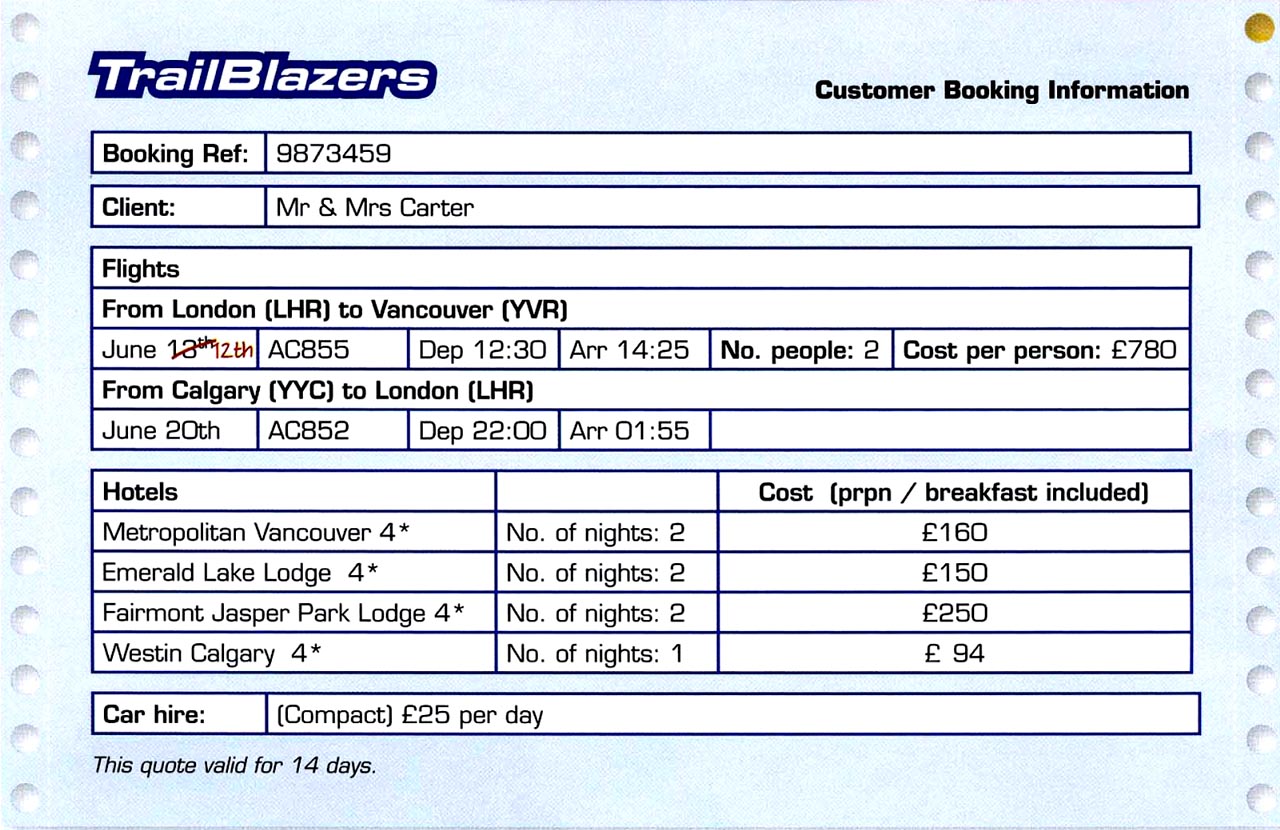
a What does prpn mean? ………………………..
b How long does it take to drive from:
Vancouver to Lake Louise? ………………………..
Lake Louise to Jasper? ………………………..
Jasper to Calgary? ………………………..
c What can you do in these places?
Jasper National Park: ………………………..
Calgary: ………………………..
a Per room per night
b Vancouver to Lake Louise – 9 hours, Lake Louise to Jasper – 4 hours, Jasper to Calgary – 5 hours
c Jasper National Park: you can play golf, go hiking and go boating.
Calgary: you can go shopping, and visit museums and Calgary Tower.
(Travel agent = South African)
Travel agent: Hello. Take a seat. How can I help?
Simon: We’re thinking of going to Canada, Vancouver and then to Calgary.
Jenny: Yes, flying to Vancouver on June the 12th.
Travel agent: OK. How many nights?
Jenny: Just eight. Coming back on the 20th, from Calgary.
Travel agent: OK … just a moment … Yes, with Air Canada, that’ll be £780 per person, including all taxes.
Jenny: Oh, that’s better than we thought!
Simon: Hmm! We were thinking three nights in Vancouver first. Somewhere rather nice?
Travel agent: We have a special on at the moment with the Metropolitan. It’s a lovely hotel, four stars … You can see it here. That’s, um … £140 a night.
Jenny: Per person?
Travel agent: No, that’s for the room. All these are per room per night, without breakfast.
Simon: Oh, yes. It certainly looks very nice.
Travel agent: It is! I stayed there last year. And you should definitely hire a car – it’s only £30 per day for a small car – and drive to Lake Louise.
Jenny: Oh, yes. We want to go there.
Travel agent: I recommend you stay at the Emerald Lake Lodge. It’s a perfect place to explore from.
Simon: That sounds good.
Travel agent: Let me see … that’ll be £150 per night. It’s worth spending two nights there.
Simon: Two nights?
Travel agent: Yes, it’s a nine-hour drive from Vancouver, so two nights is best. And then you can drive to Jasper – that’s four hours. Two nights at the Fairmont Jasper Park Lodge will be £250 per night. It’s expensive, but it’s well worth going there. A beautiful place.
Simon: Look, a log cabin!
Travel agent: Yes. You get your own cabin.
Jenny: And there’s plenty to do in Jasper National Park, is there?
Travel agent: Sure. You can play golf, go hiking … and boating if you fancy that. Then you’ve got a five-hour drive to Calgary. A final night somewhere like the Westin will save money – just £74. There’s enough for a day – shopping, museums and Calgary Tower, of course. You can drop your car off at the airport and fly back at ten in the evening.
Simon: Well, that’s the kind of thing we were thinking of, isn’t it, dear?
Jenny: Yes, it is. Can you print out those details and we’ll take a brochure?
Renting a car
1. Listen and complete these questions you can ask when you want to rent a car.
a What ……………….. of cars do you have? ……
b Is ……………….. included? ……
c Do I have to pay an ……………….. if I have an accident? ……
d Can I hire a car ………………..? ……
e Is there a ……………….. limit? ……
f Do you provide ………………..? ……
g Is ……………….. cover included? ……
h What ……………….. do I need? ……
a range b insurance c excess d one-way e mileage
f child car seats g accident h documents
Transcripts
(Speaker = American)
a What range of cars do you have?
b Is insurance included?
c Do I have to pay an excess if I have an accident?
d Can I hire a car one-way?
e Is there a mileage limit?
f Do you provide child car seats?
g Is accident cover included?
h What documents do I need?
a 2 b 4 c 7 d 3 e 1 f 8 g 5 h 6
(Speaker = German)
1 If you average more than 250 miles per day, then there’s a charge of €10 per mile.
2 We have all kinds: small, compact, mid-sized and full-sized.
3 Sure. There’s an extra charge of €30 for all one-way hires.
4 Yes, full cover is provided for every named driver.
5 Yes, all that’s covered. There’s a 24-hour emergency number to call if you need assistance.
6 You need a valid driver’s licence or an international licence with a passport
7 Yes, you have to pay the first €900 of any claim.
8 Yes. They’re free of charge. We’ll fit them for you in the back seat.
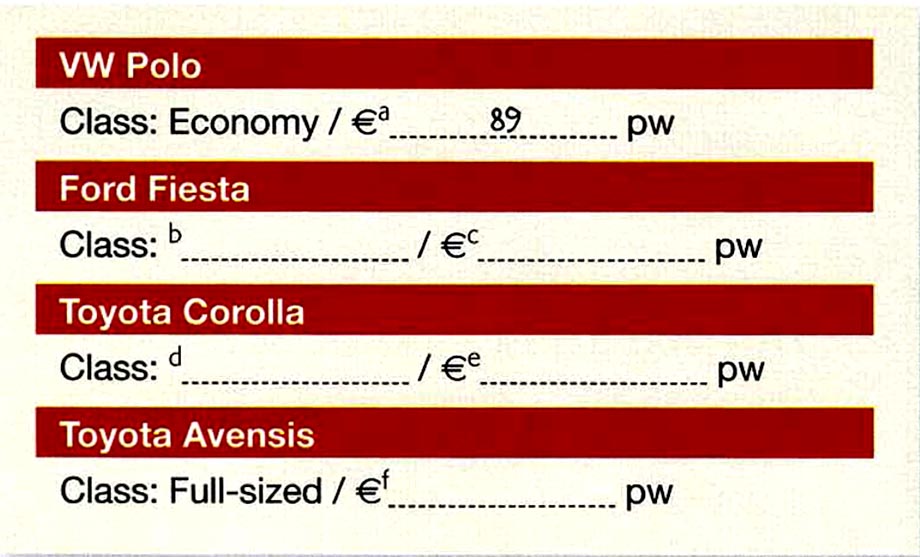
a 89 b Compact c €99 d Intermediate e 139 f 169
a How long does she want to rent a car? ………………..
b Why doesn’t she want the VW Polo? ………………..
c Why doesn’t she rent the Ford Fiesta? ………………..
d How much does she finally pay? ………………..
e Why is this cheaper than the advertised price? ………………..
a For a week.
b It’s too small.
c It’s not automatic.
e It’s a special offer.
(Laura = Italian; assistant = Irish)
Laura: I’d like to hire a car for a week, from next Monday.
Assistant: Certainly. What class of car would you like to have?
Laura: Em, well. What have you got?
Assistant: Our Economy car is a two-door Polo. That’s 89 euro for a week.
Laura: Hmm. That’s too small. We are four. Do you have anything else?
Assistant: Next up is a Compact car. A Ford Fiesta. The rate for that is 99 euro.
Laura: Is that an automatic?
Assistant: No, it’s manual.
Laura: I want an automatic, really. What automatics have you got?
Assistant: We have a Toyota Corolla. Let me see … that’s 139 euro for the week.
Laura: Wow. That’s a big increase.
Assistant: Yes, well, it’s a bigger car. it’s an Intermediate class. All our full-sized cars are automatic, too, but they’re 169 euro.
Laura: Oh, I see.
Assistant: Actually, we have a special offer on at the moment. I think we have an automatic Corolla … Yes, for 125 euro.
Laura: OK. That’s the one!
Related Posts
- Practice Listening English Exercises for B1 – Travel
- Practice Listening English Exercises for B1 – Making plans
- Practice Listening English Exercises for B1 – We love celebs!
- Practice Listening English Exercises for B1 – Lights, camera, action!
- Practice Listening English Exercises for B1 – Let’s cook!
- Practice Listening English Exercises for B1 – Getting around
Submit a Comment Cancel reply
You must be logged in to post a comment.
- Listening Exercises B1 – Television
- Practice Listening English Exercises for B1 – Television
- Practice Listening English Exercises for B1 – Amazing architecture
- Practice Listening English Exercises for B1 – Going places
- Listening Exercises B1 – Sightseeing
Download World Class eBooks
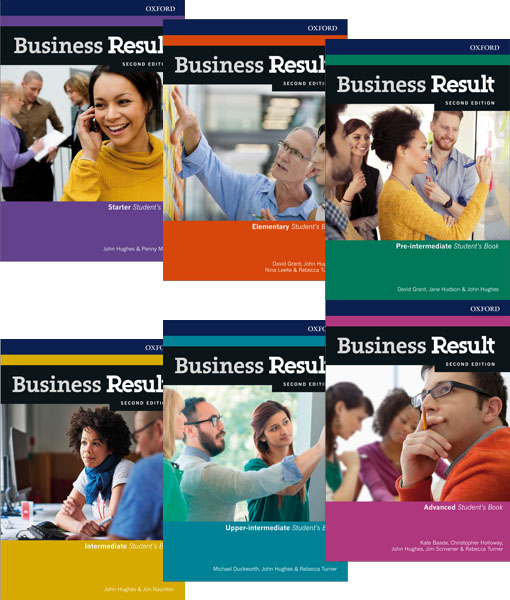
Pin It on Pinterest

IMAGES
VIDEO
COMMENTS
Fitness Holidays. 8. Answer: stress Locate Listen from here. 9. Answer: weight Locate Listen from here. 10. Answer: families Locate Listen from here. Fitness Holidays listening practice test has 0 questions belongs to the Recent Actual Tests subject. In total 0 questions, 4 questions are Multiple Choice form, 3 questions are Summary, form ...
15 How does BC Travel plan to expand the painting holidays? A by adding to the number of locations. B by increasing the range of levels. C by ... Answer Cam 12 Listening Test 03. Part 1. 1 travel / travel(l)ing. 2 history. 3 study. 4 teenagers. 5 kitchen. 6 crime. 7 appointment / booking. 8 sugar. 9 stamps ...
BC Travel Listening Answers. 11 & 12 IN EITHER ORDER D E 13 & 14 IN EITHER ORDER A C. 15. C 16. B 17. A 18. stress 19. weight 20. families. Section - 3 Stages in doing a tourism case study. Study in doing a tourism case study Listening Answers. 21. C 22. E
It's a shiny, silvery substance. You may have seen it in old-fashioned thermometers, but it's not used much for domestic purposes now because it's highly toxic. But the problem is that the amount of mercury in the environment's increasing. The main reason for this is the power plants used to produce electricity.
SECTION 2 Questions 11-20. Questions 11 and 12. Choose TWO letters, A-E . Which TWO age groups are taking increasing numbers of holidays with BC Travel?. A 16-30 years B 31-42 years C 43-54 years D 55-64 years E over 65 years Questions 13 and 14. Choose TWO letters, A-E. Which TWO are the main reasons given for the popularity of activity holidays?. A Clients make new friends
Bc Travel Agency IELTS Listening Answers With Audio, Transcript, And Explanation. Luyện tập đề IELTS Listening Practice với Bc Travel Agency được lấy từ cuốn sách IELTS Cambridge 12 - Test 3 - Section 2 kèm Answer key, list từ vựng IELTS cần học trong bài đọc và Free PDF & Audio Transcript Download với trải nghiệm thi IELTS trên máy và giải thích ...
BC Travel Fitness Holidays Listening Answer Key. The Horton Castle site Answers. Following are the Part-3 answers to The Horton Castle site in IELTS 12 Listening Test 7: Q. No Answer; 21: C: 22: E: 23: H: 24: B: 25: A: 26: F: 27: A: 28: C: 29: B: 30: B: The Horton Castle site Listening Answer Key. Effects of environmental change on birds Answers.
Cambridge IELTS 12 Listening Test 3 - Section 2. Questions 11 and 12. Choose TWO letters, A-E. Which TWO age groups are taking increasing numbers of holidays with BC Travel? A 16-30 years. B 31-42 years. C 43-54 years. D 55-64 years. E over 65 years.
Fitness Holidays IELTS Listening Answers is a monologue on fitness holidays. The BC Fitness holiday speaker talks about different trips and their main focus. ... Answer: E Explanation: BC travel has conducted a session about fitness holidays and travels. In terms of age group, one that is increasing is over 65 years. Hence, over 65 years of age ...
The effects of environmental change on birds. Mercury (Hg) Highly toxic. Released into the atmosphere from coal. In water it may be consumed by fish. It has also recently been found to affect birds which feed on. Research on effects of mercury on birds. Claire Varian-Ramos is investigating: - the effects on birds' or mental processes, e.g ...
Questions 1-10 Listen from here. Write ONE WORD ONLY for each answer. Example: The library re-opened last __month__The library now has. a seating area with magazines. an expanded section for books on. a new section on local. a community room for meetings (also possible to there) a new section of books for. For younger children.
stages in doing a tourism case study listening answers. Questions 27 - 30. Choose the correct letter, A, B or C. The Horton Castle site (27) Natalie and Dave agree one reason why so few people visit Horton Castle is that A the publicity is poor.. B it is difficult to get to.. C there is little there of interest. (28) Natalie and Dave agree that the greatest problem with a visitor centre could be
The four parts of this practice Listening test are presented over four separate web pages. Make sure you move swiftly from one page to the next so that your practice is as realistic as possible. Download the question paper and blank answer sheet before you start, and write your answers on the question paper while you are listening. Use a pencil.
IELTS Academic Listening Practice Test 25 With Answers. Questions 11-12. Choose TWO letters, A-E. Which TWO age groups are taking increasing numbers of holidays with BC Travel? A. 16-30 years. B. 31-42 years. C. 43-54 years. D. 55-64 years. E. over 65 years. Questions 13-14.
BC travel fitness holidays in Cambridge 12 Listening Test 7 is as follows: In this session in your training day we're going to look at home of the more specialised holidays we offer at BC Travel. Now, the travel business is very competitive and it's important to be aware of how the market's changing and developing.
Listening Travel company 12 Test 03. SECTION 2. Questions 11 and 12. Choose TWO letters, A-E. Which TWO age groups are taking increasing numbers of holidays with BC Travel? A 16-30 years. B 31-42 years. C 43-54 years. D 55-64 years.
IELTS Listening Test Tips! ... Write ONE WORD/OR A NUMBER for each answer. JOB APPLICATION FORM: Pembroke Cycling Holidays ... Which TWO age groups are taking increasing numbers of holidays with BC travel? A. 16-30 years B. 31-42 years C. 42-54 years D. 55-64 years E. over 65 years ...
C12 LISTENING 3 AC. Show Test Info. Aa Aa Aa. Section 1: Questions 1-10. Questions 1 - 10. Show Notepad Complete the notes below. Write ONE WORD ONLY for each answer. PUBLIC LIBRARY: Example ... How does BC Travel plan to expand the painting holidays? A by adding to the number of locations;
Worksheets and downloads. Travelling abroad - exercises 257.15 KB. Travelling abroad - answers 255.43 KB. Travelling abroad - transcript 244.84 KB.
Keywords concerned in Q1 are "book","section". From the question, we can assume that the answer must be a noun. Susie said "we've got a much larger section of the library" suggests that the answer will appear. Listening carefully, Susie mentions "travel book". So the answer is "travel". 2 Answer: history.
1 Who had their seat upgraded? a. Emily. b. Michael. c. Aiden. d. None of the speakers. 2 Who boarded their plane before any other passengers?
a 2 b 4 c 7 d 3 e 1 f 8 g 5 h 6. Transcript (Speaker = German) 1 If you average more than 250 miles per day, then there's a charge of €10 per mile. 2 We have all kinds: small, compact, mid-sized and full-sized. 3 Sure.There's an extra charge of €30 for all one-way hires.